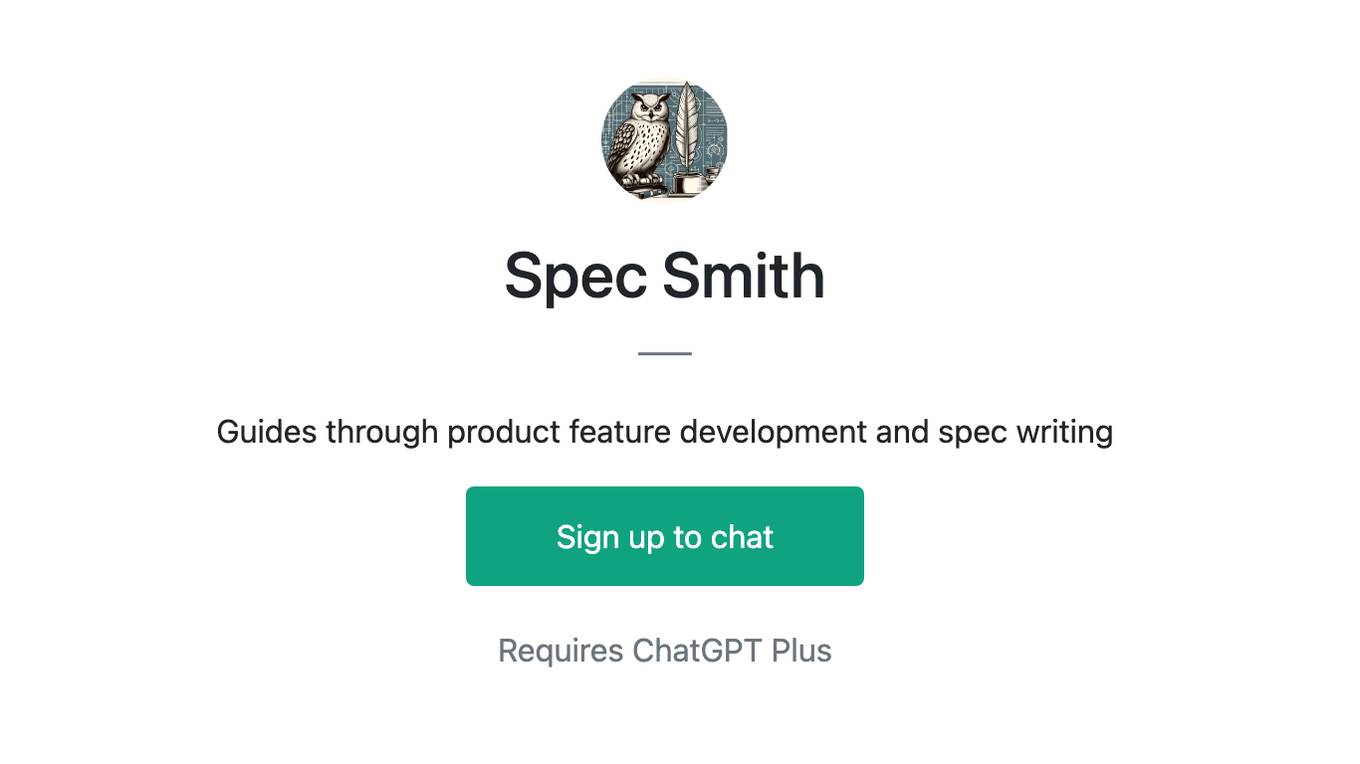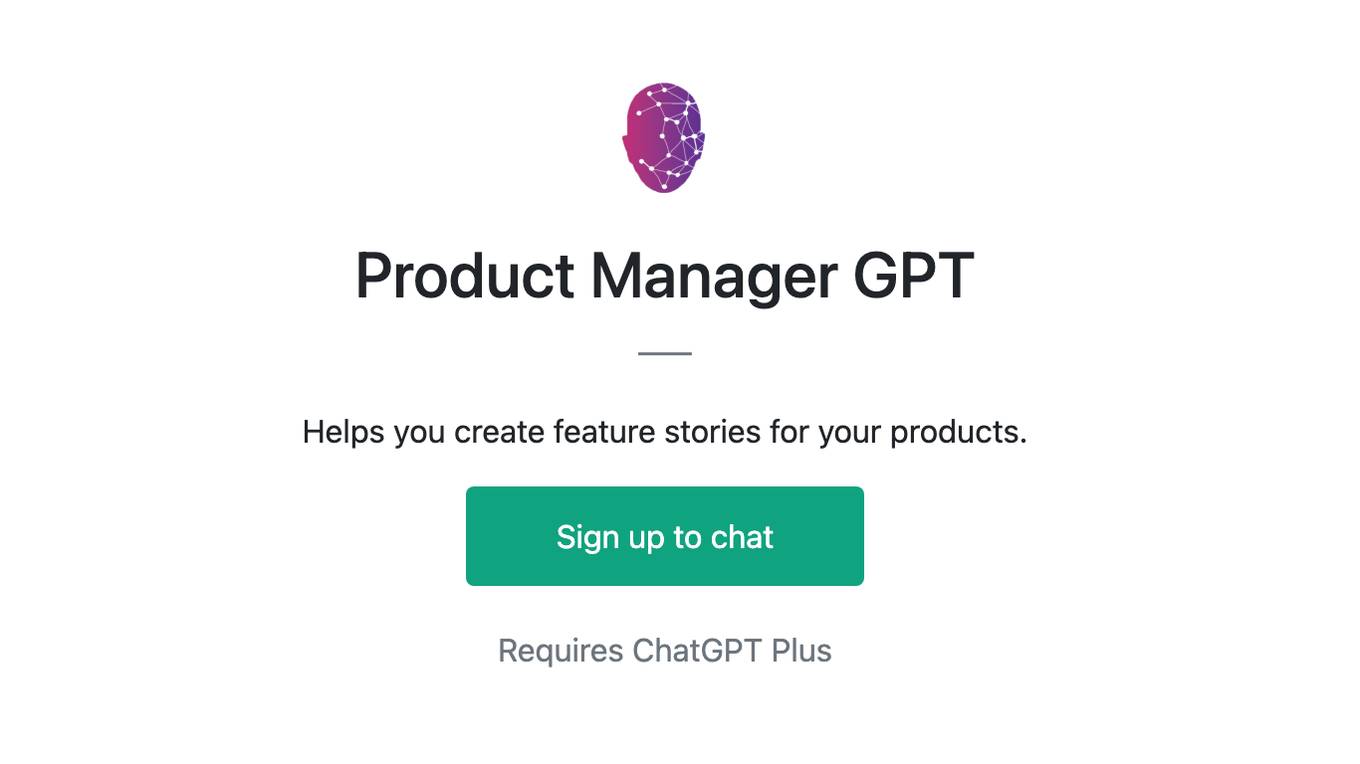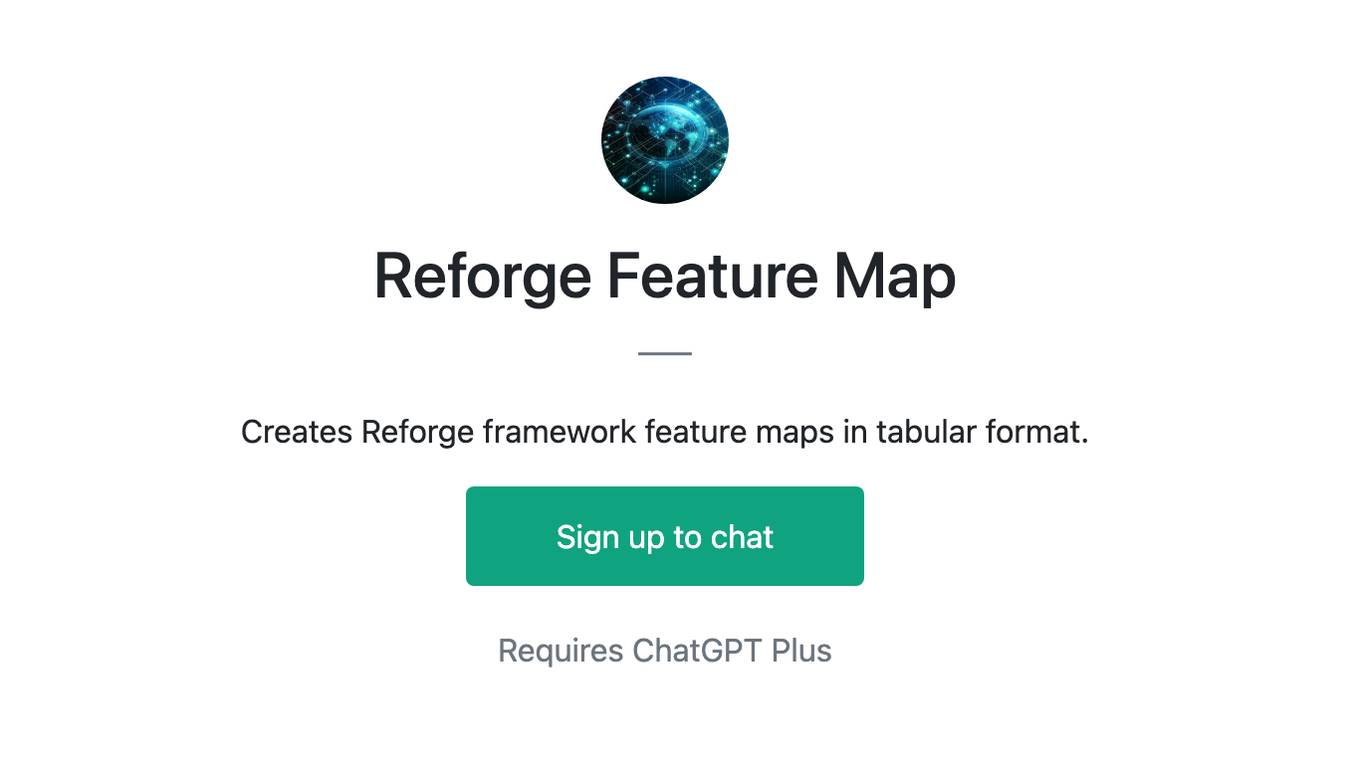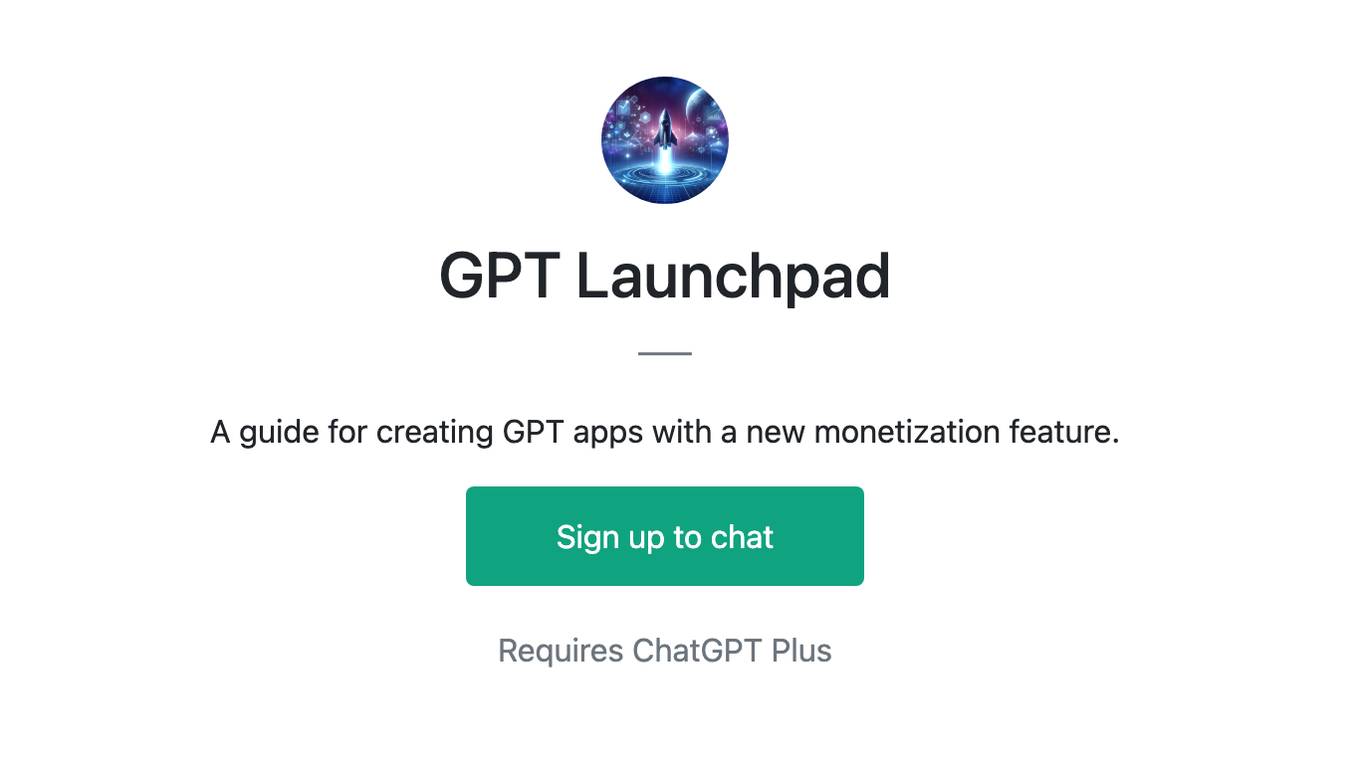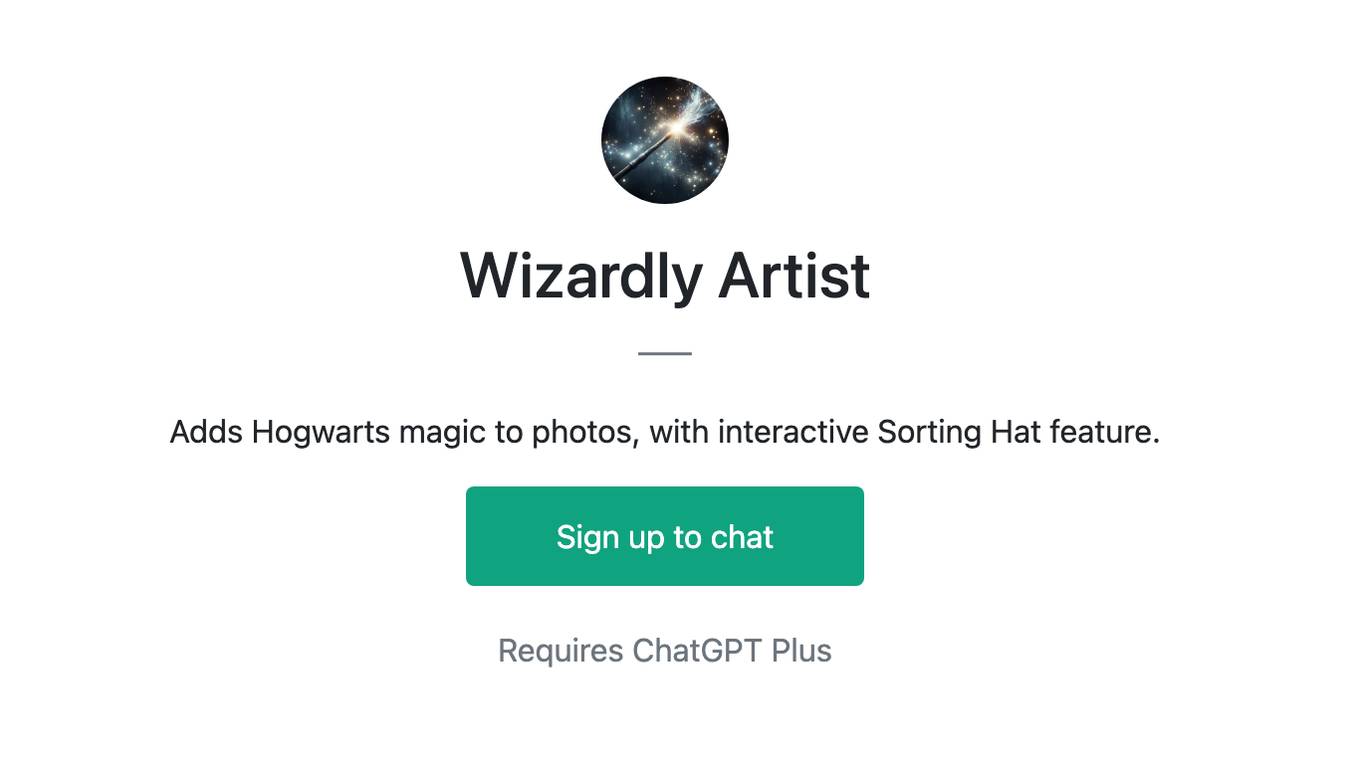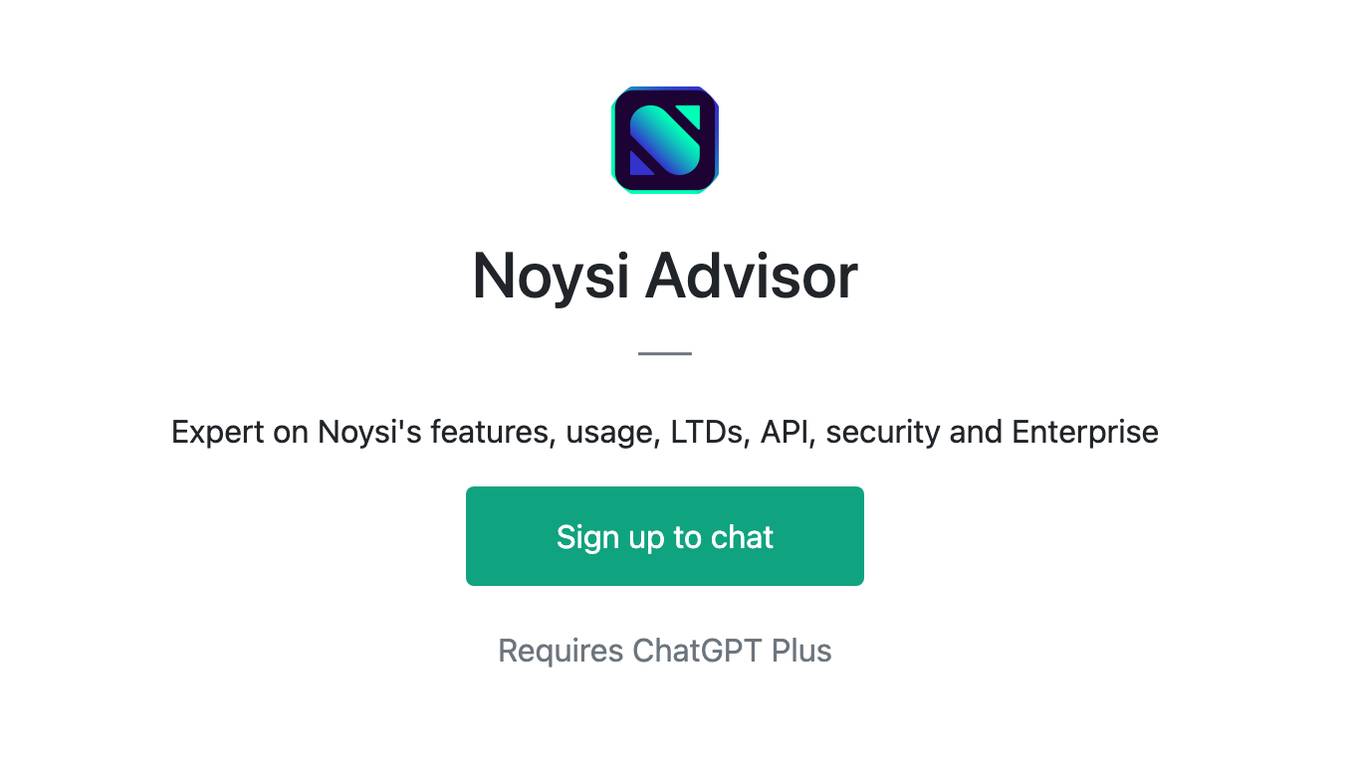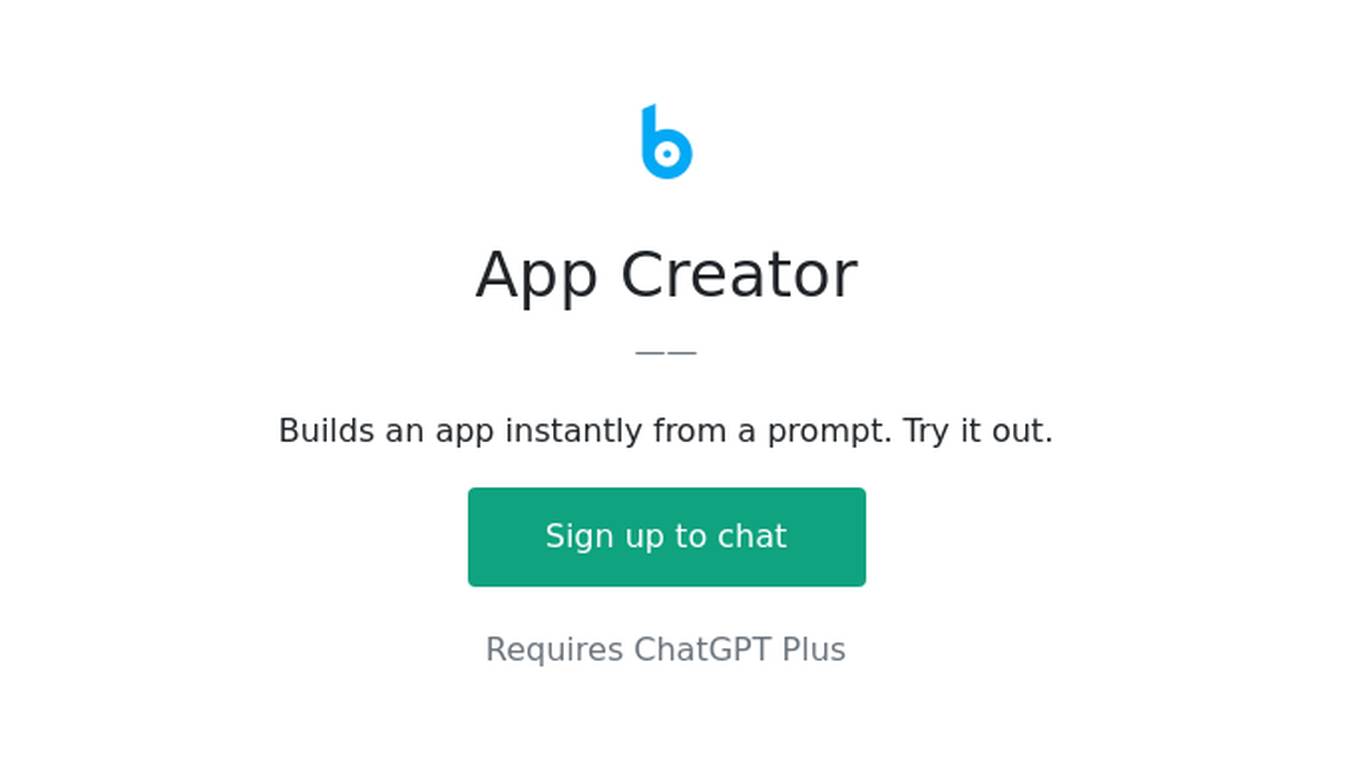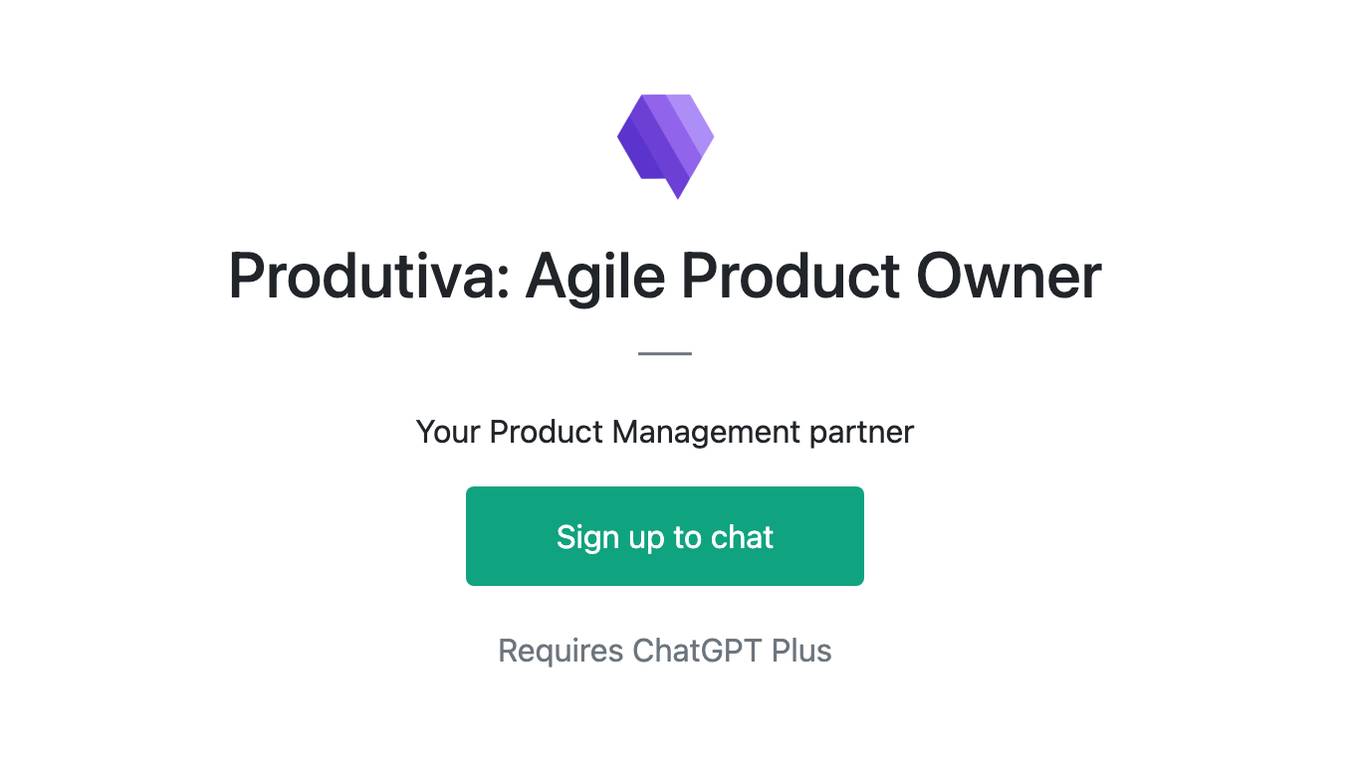Best AI tools for< Manage Feature Rollouts >
20 - AI tool Sites
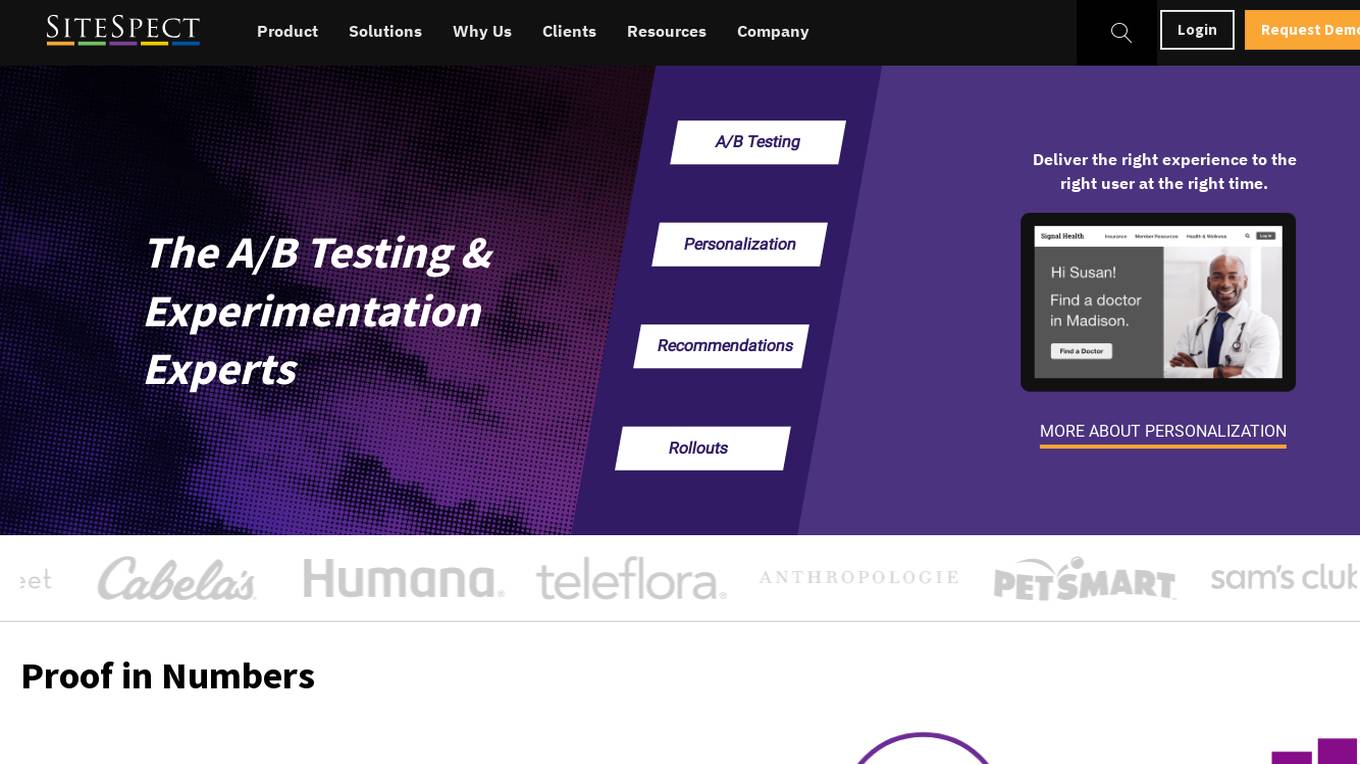
SiteSpect
SiteSpect is an AI-driven platform that offers A/B testing, personalization, and optimization solutions for businesses. It provides capabilities such as analytics, visual editor, mobile support, and AI-driven product recommendations. SiteSpect helps businesses validate ideas, deliver personalized experiences, manage feature rollouts, and make data-driven decisions. With a focus on conversion and revenue success, SiteSpect caters to marketers, product managers, developers, network operations, retailers, and media & entertainment companies. The platform ensures faster site performance, better data accuracy, scalability, and expert support for secure and certified optimization.
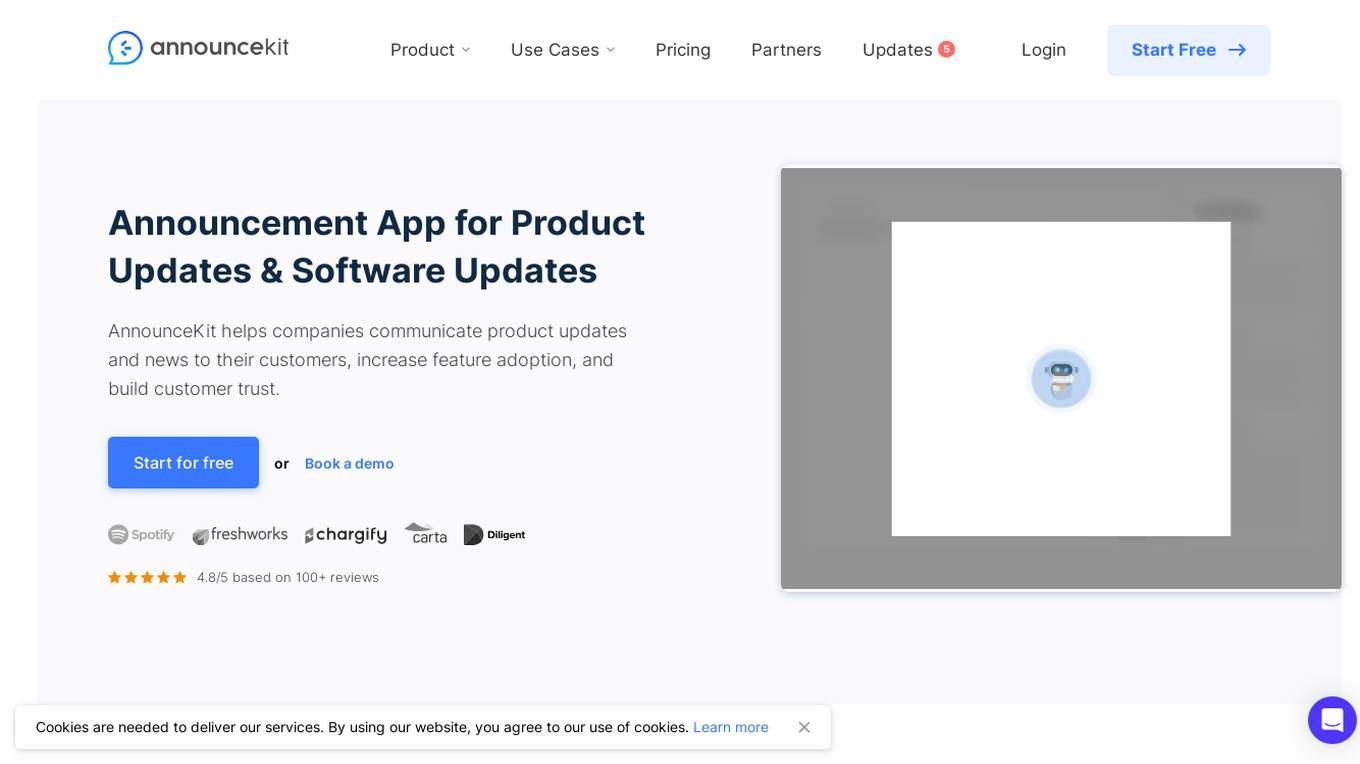
AnnounceKit
AnnounceKit is an AI-powered announcement app and software designed to help companies effectively communicate product updates and news to their customers. It enables businesses to increase feature adoption, build customer trust, and engage with users through eye-catching notifications and widgets. With features like integrations, audience segmentation, customer feedback collection, and AI writing assistant, AnnounceKit offers a comprehensive solution for managing product announcements and updates.
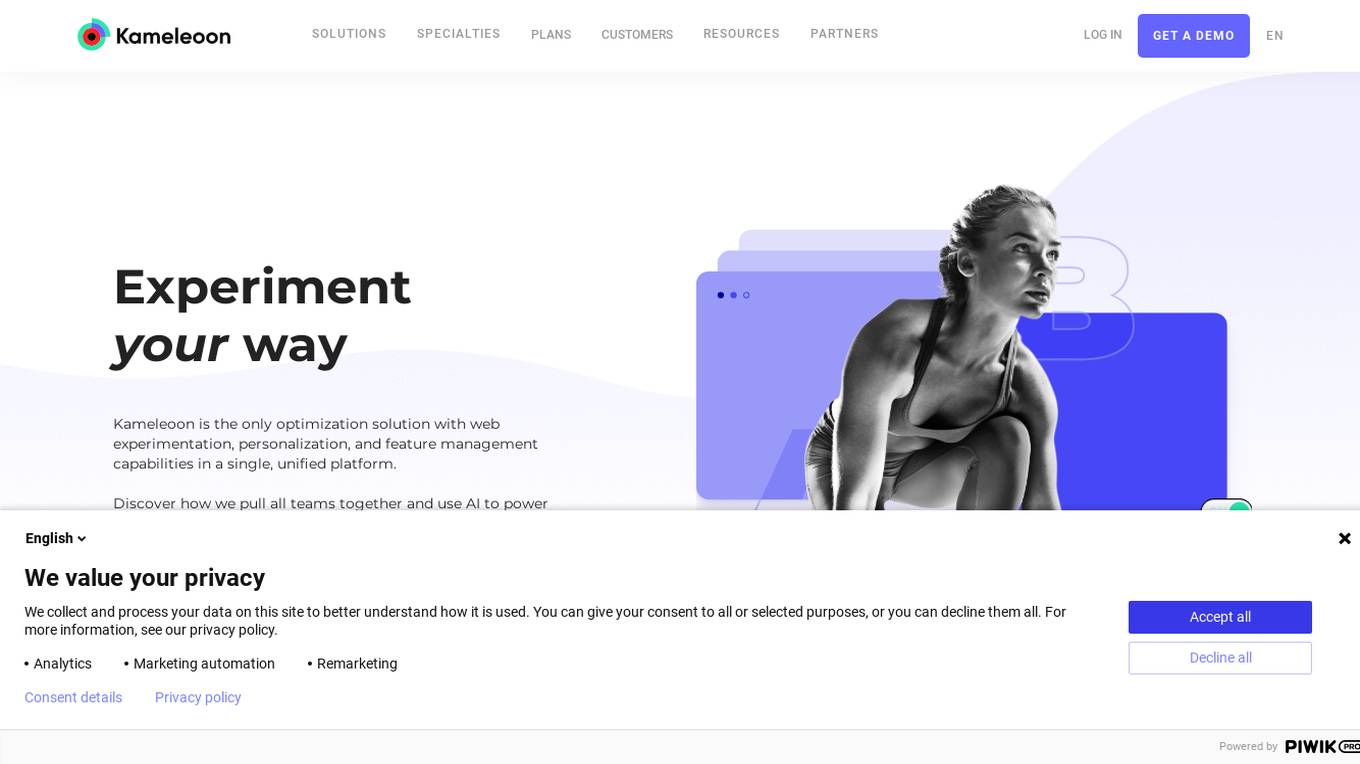
Kameleoon
Kameleoon is an AI-driven A/B testing platform and personalization tool designed to optimize web experiences through experimentation and feature management. It offers a single platform with AI-powered conversion capabilities, strong security features, and powerful integrations. Kameleoon caters to a wide range of industries, including E-commerce, Retail, Travel, Automotive, Financial Services, Media, Healthcare, and B2B SaaS. The platform enables users to run experiments, personalize content, manage features, and analyze real-time data to enhance user experiences and drive growth.

Unified DevOps platform to build AI applications
This is a unified DevOps platform to build AI applications. It provides a comprehensive set of tools and services to help developers build, deploy, and manage AI applications. The platform includes a variety of features such as a code editor, a debugger, a profiler, and a deployment manager. It also provides access to a variety of AI services, such as natural language processing, machine learning, and computer vision.
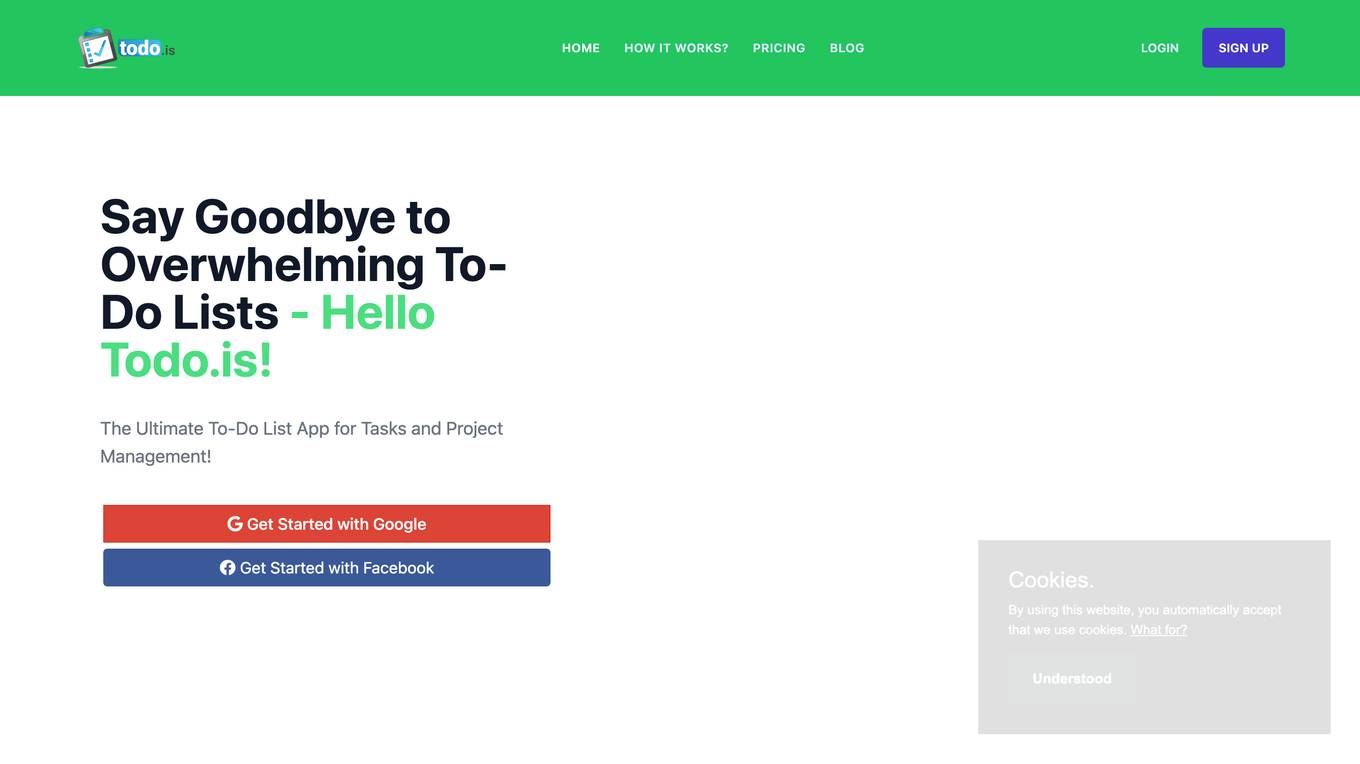
Todo.is
Todo.is is an AI-powered task management and project organization application designed to enhance productivity and efficiency. It offers features such as AI-powered task generation, smart suggestions, and seamless collaboration tools. Users can interact with an AI assistant for instant support, convert text to speech, analyze images, and more. Todo.is is suitable for teams across various industries, providing a structured approach to task management and project organization.
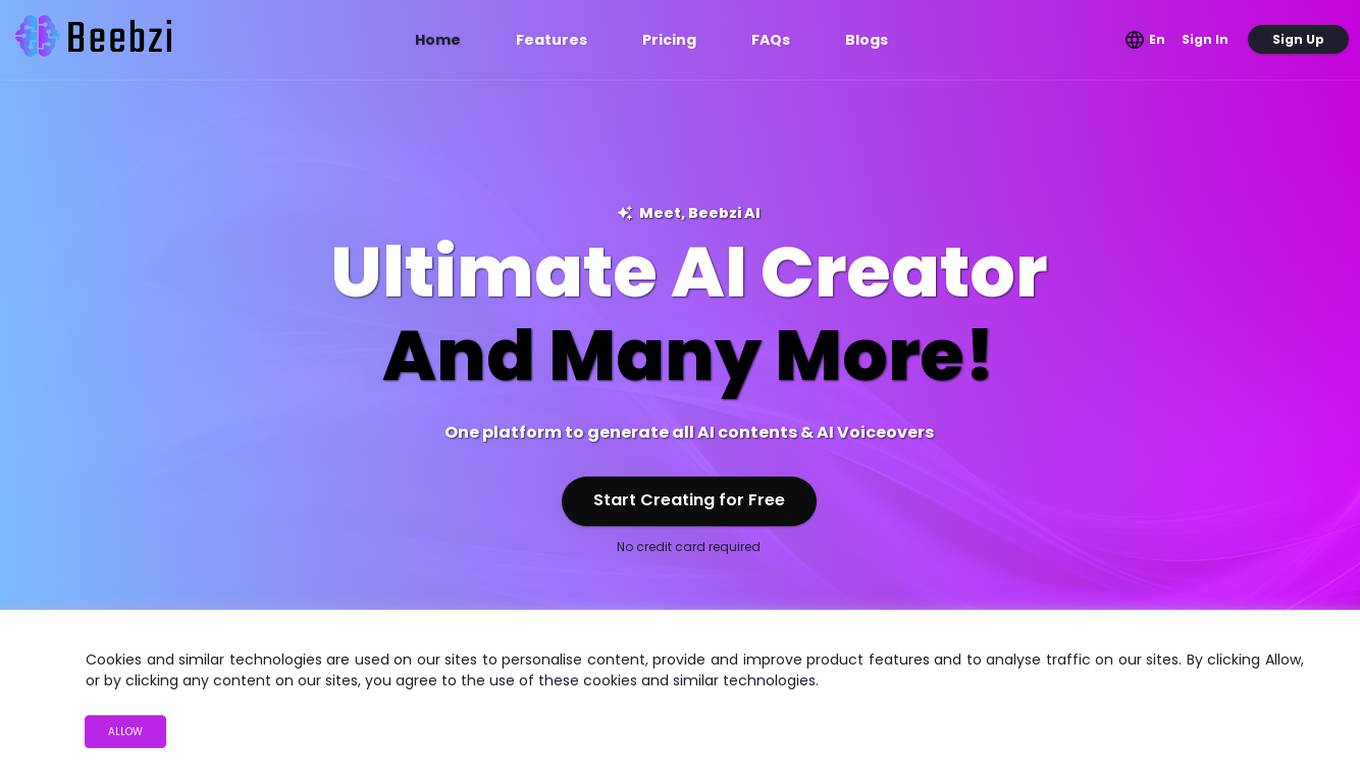
Beebzi.AI
Beebzi.AI is an all-in-one AI content creation platform that offers a wide array of tools for generating various types of content such as articles, blogs, emails, images, voiceovers, and more. The platform utilizes advanced AI technology and behavioral science to empower businesses and individuals in their marketing and sales endeavors. With features like AI Article Wizard, AI Room Designer, AI Landing Page Generator, and AI Code Generation, Beebzi.AI revolutionizes content creation by providing customizable templates, multiple language support, and real-time data insights. The platform also offers various subscription plans tailored for individual entrepreneurs, teams, and businesses, with flexible pricing models based on word count allocations. Beebzi.AI aims to streamline content creation processes, enhance productivity, and drive organic traffic through SEO-optimized content.
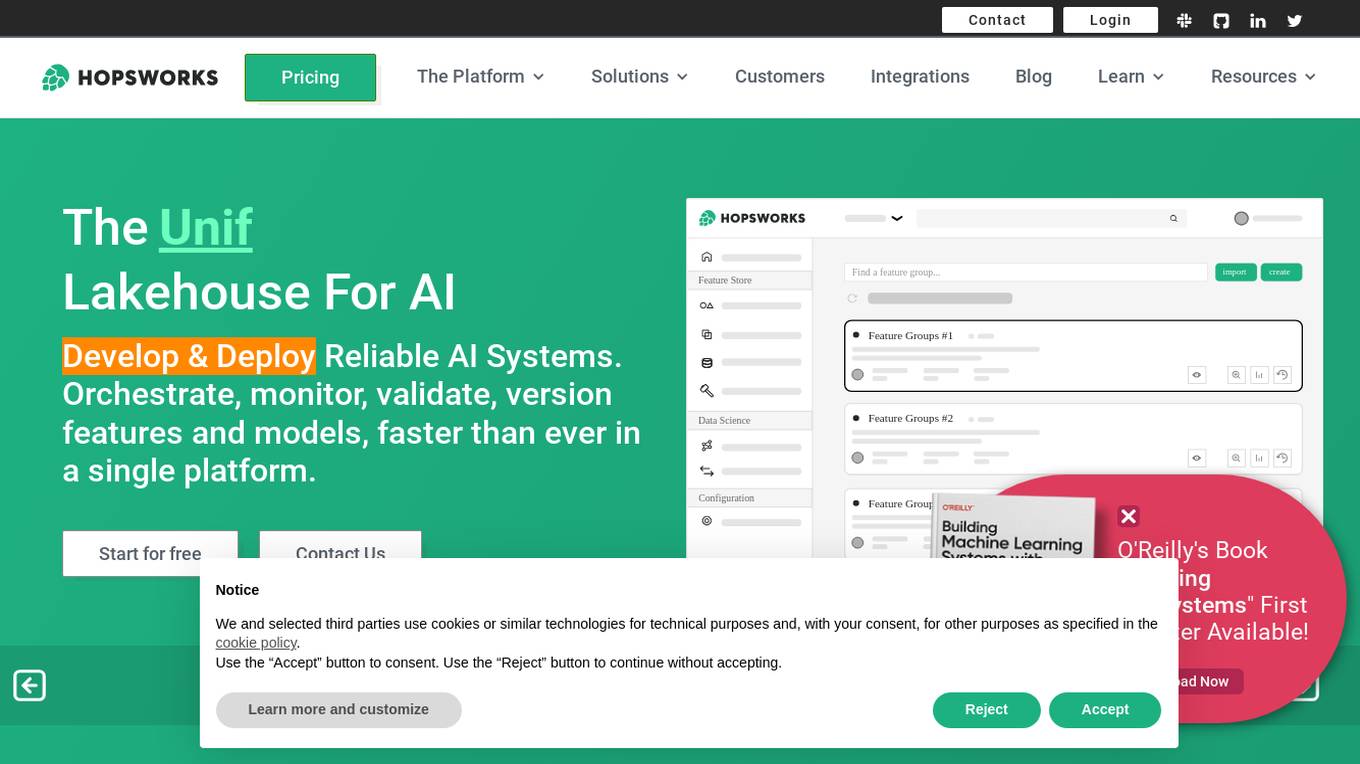
Hopsworks
Hopsworks is an AI platform that offers a comprehensive solution for building, deploying, and monitoring machine learning systems. It provides features such as a Feature Store, real-time ML capabilities, and generative AI solutions. Hopsworks enables users to develop and deploy reliable AI systems, orchestrate and monitor models, and personalize machine learning models with private data. The platform supports batch and real-time ML tasks, with the flexibility to deploy on-premises or in the cloud.
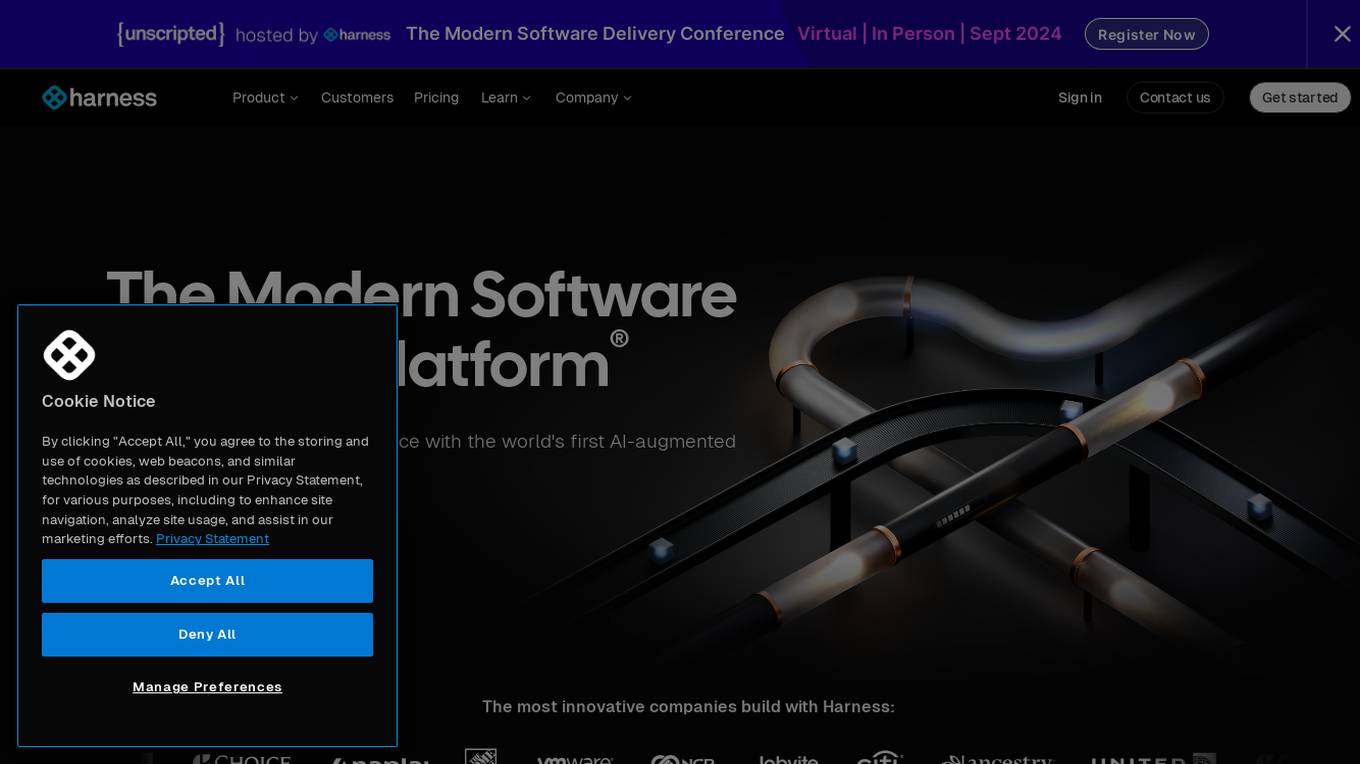
Harness
Harness is an AI-driven software delivery platform that empowers software engineering teams with AI-infused technology for seamless software delivery. It offers a single platform for all software delivery needs, including DevOps modernization, continuous delivery, GitOps, feature flags, infrastructure as code management, chaos engineering, service reliability management, secure software delivery, cloud cost optimization, and more. Harness aims to simplify the developer experience by providing actionable insights on SDLC, secure software supply chain assurance, and AI development assistance throughout the software delivery lifecycle.
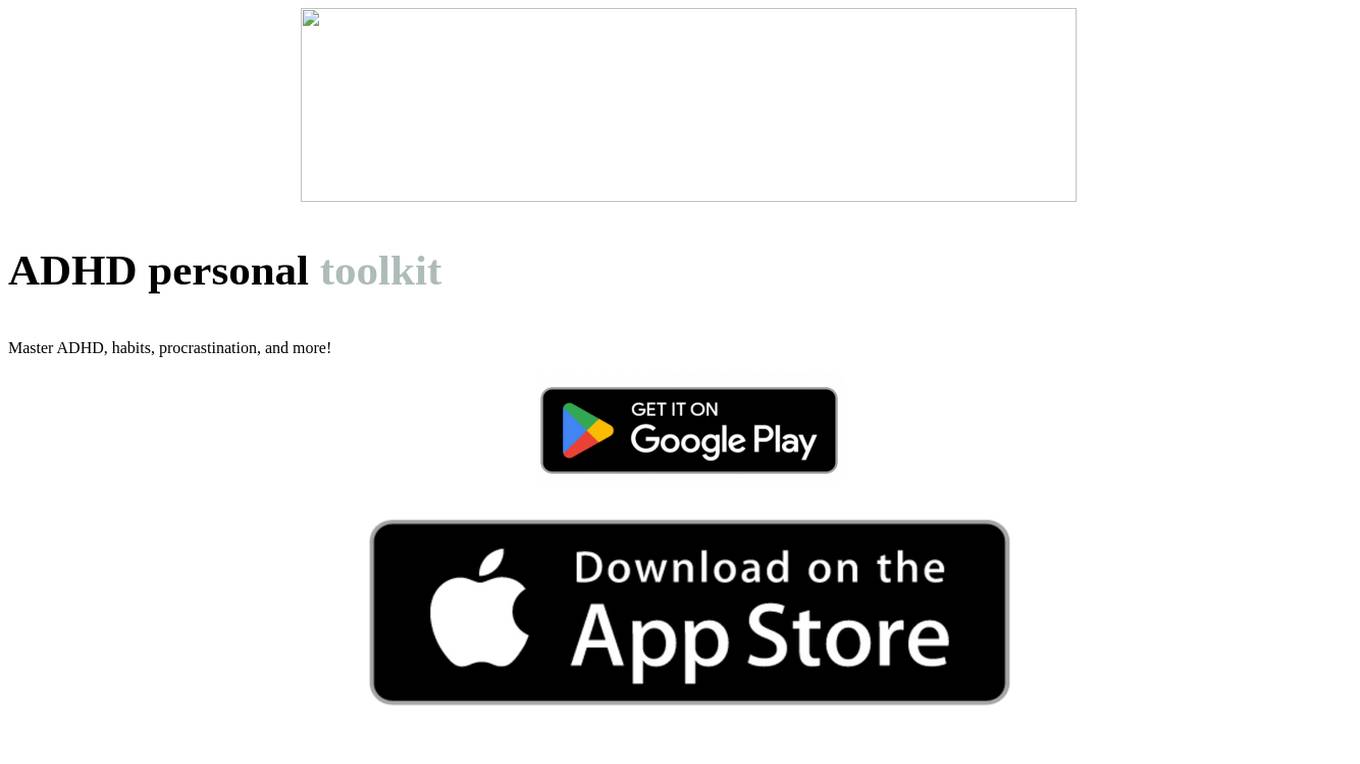
Univi
Univi is a website that offers video courses, hands-on assignments, and personalized tutoring for people with ADHD. The courses cover a variety of topics, including procrastination, communication, and anxiety. Univi also offers a personalized meditation feature that uses AI to create customized meditation sessions based on the user's needs. The website also includes an interactive learning component that allows users to help characters manage their ADHD and see their own progress as they apply what they've learned.
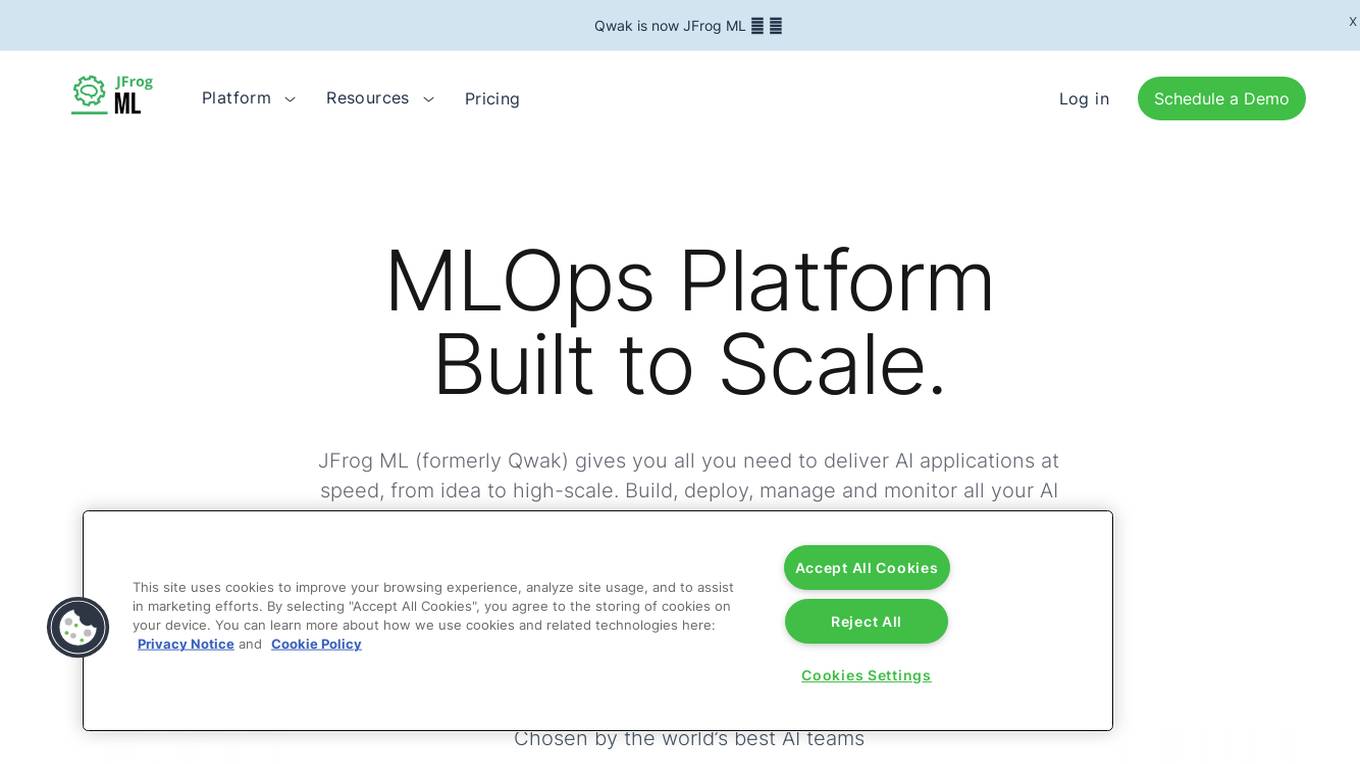
JFrog ML
JFrog ML is an AI platform designed to streamline AI development from prototype to production. It offers a unified MLOps platform to build, train, deploy, and manage AI workflows at scale. With features like Feature Store, LLMOps, and model monitoring, JFrog ML empowers AI teams to collaborate efficiently and optimize AI & ML models in production.

Playborg.ai
Playborg.ai is a cutting-edge online magazine and marketing agency specializing in featuring AI-generated models. The platform offers unparalleled exposure for AI models and connects brands with innovative advertising opportunities to enhance their visibility and engagement. Playborg.ai focuses exclusively on high-quality, AI-generated models, providing a unique blend of art and technology. The services cater to a broad range of clients, including brands, advertisers, and creators interested in leveraging cutting-edge AI in their marketing efforts.
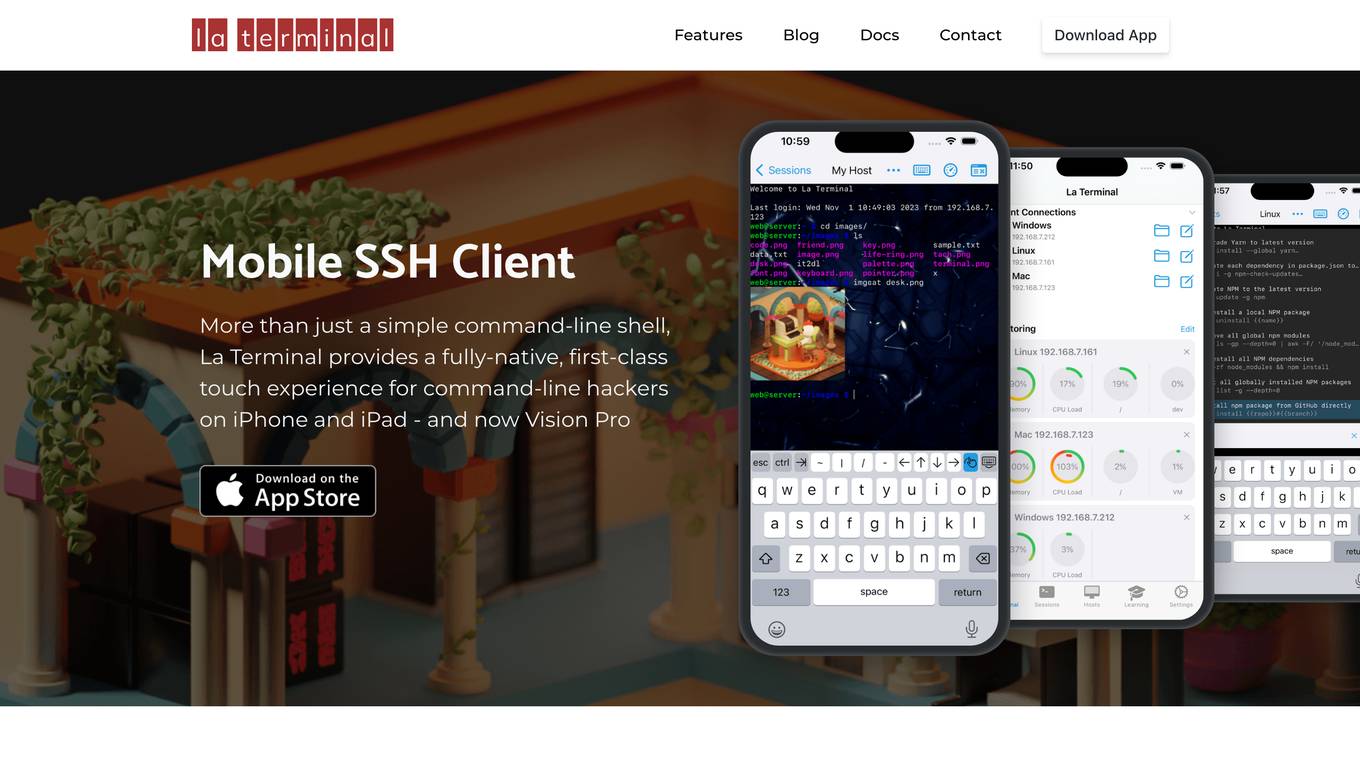
La Terminal
La Terminal is a fully-native, first-class touch experience for command-line hackers on iPhone and iPad. It provides a secure, open-source, and feature-rich environment for managing remote servers, automating tasks, and exploring the command line. With AI assistance from El Copiloto, La Terminal makes it easy to find and execute commands, even for beginners.
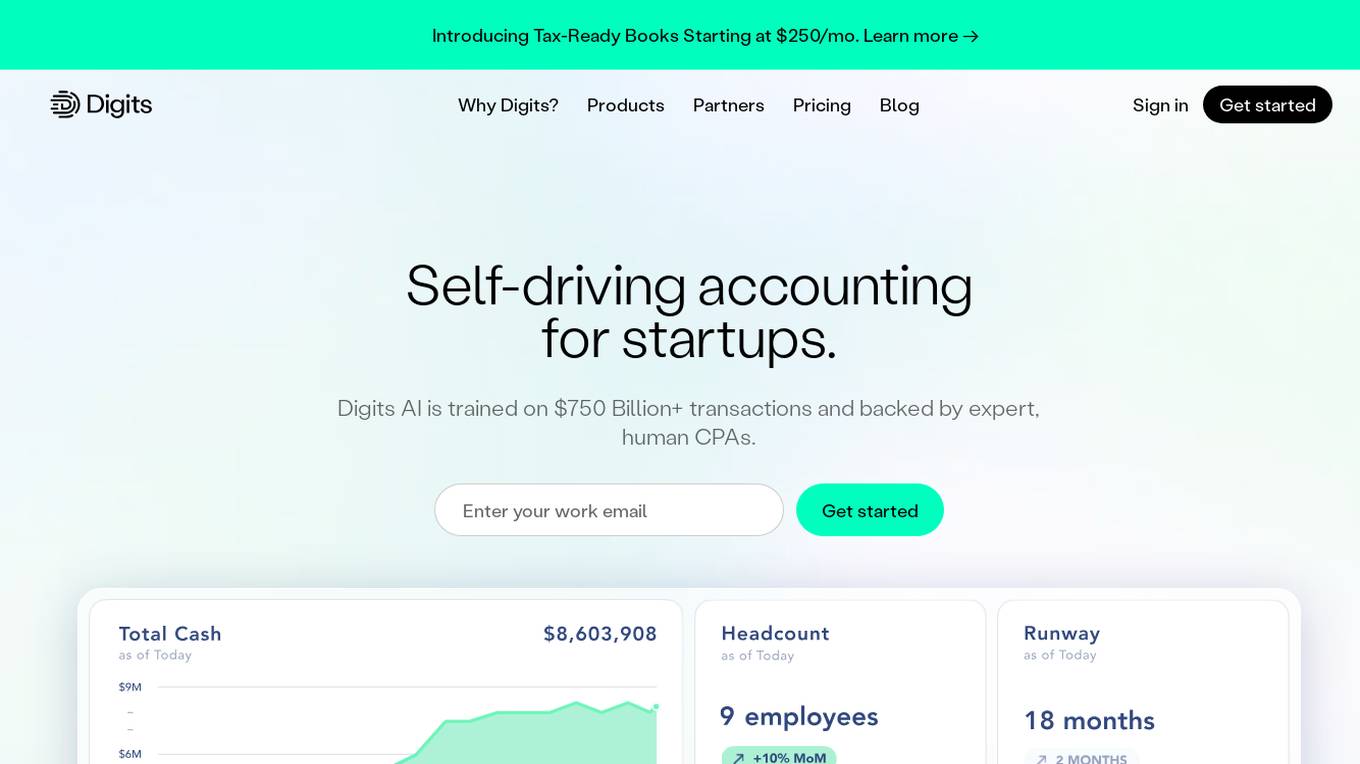
Digits
Digits is an automated accounting platform that offers tax-ready books starting at $250 per month. It provides AI bookkeeping with instant and accurate categorization, AI bill pay feature, live dashboards and reports, bank-grade security, and self-driving accounting for startups. The platform is backed by expert human CPAs and is trusted by top startup founders for its efficiency and time-saving capabilities. Digits ensures seamless connectivity and flow within a single platform, eliminating the need for cluttered spreadsheets and outdated tools. It offers real-time categorization, 24/7 AI bookkeeping, and financials verified and reviewed by accountants. Digits also provides tax-ready solutions, ongoing document collection, and tax preparation services.
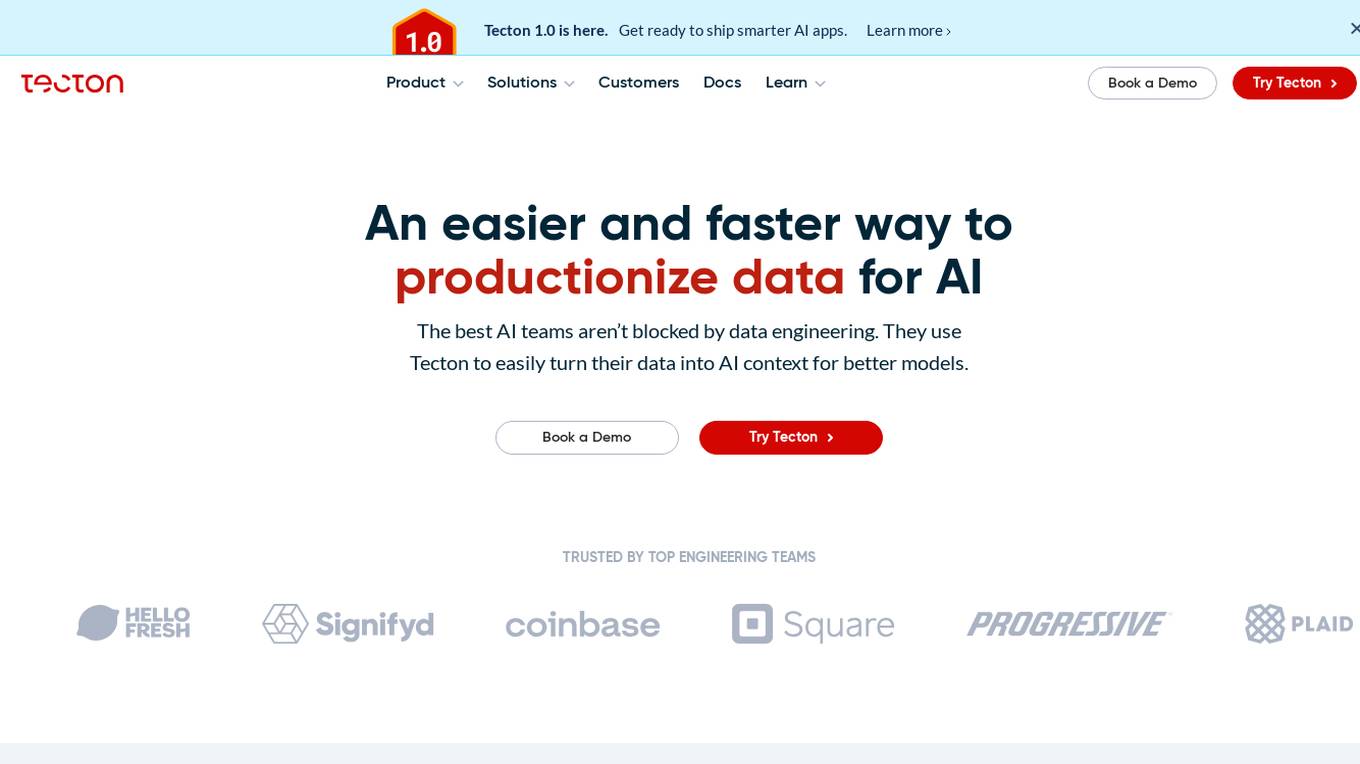
Tecton
Tecton is an AI data platform that helps build smarter AI applications by simplifying feature engineering, generating training data, serving real-time data, and enhancing AI models with context-rich prompts. It automates data pipelines, improves model accuracy, and lowers production costs, enabling faster deployment of AI models. Tecton abstracts away data complexity, provides a developer-friendly experience, and allows users to create features from any source. Trusted by top engineering teams, Tecton streamlines ML delivery processes, improves customer interactions, and automates release processes through CI/CD pipelines.
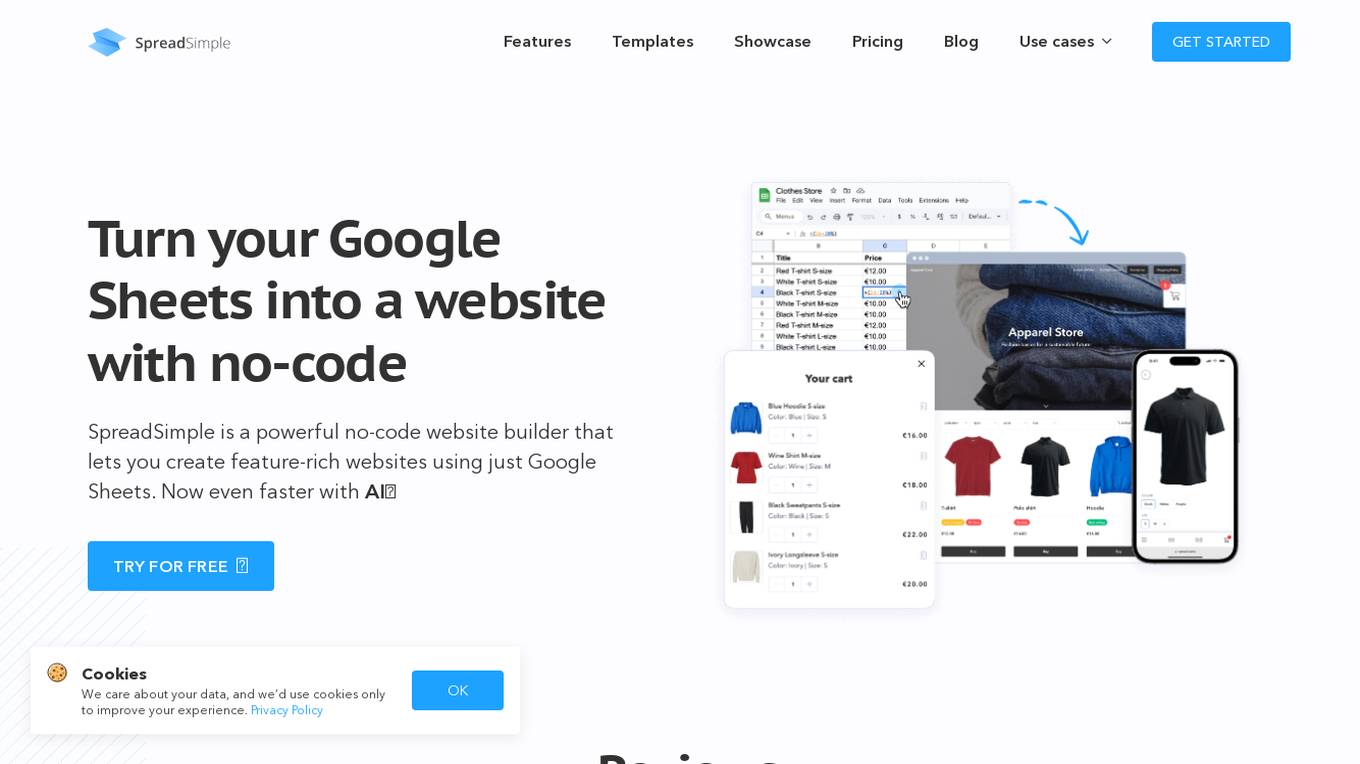
SpreadSimple
SpreadSimple is a powerful no-code website builder that allows users to create feature-rich websites using Google Sheets. The platform offers AI-powered features to quickly create websites, manage content, and customize designs without any coding knowledge. Users can easily turn their Google Sheets into websites for various purposes such as e-commerce, affiliate marketing, real estate, and more. SpreadSimple provides modern, feature-rich websites with functionalities like filtering, search, sorting, lead collection, SEO optimization, and more. The platform is designed to save time and simplify the website creation process for users of all skill levels.
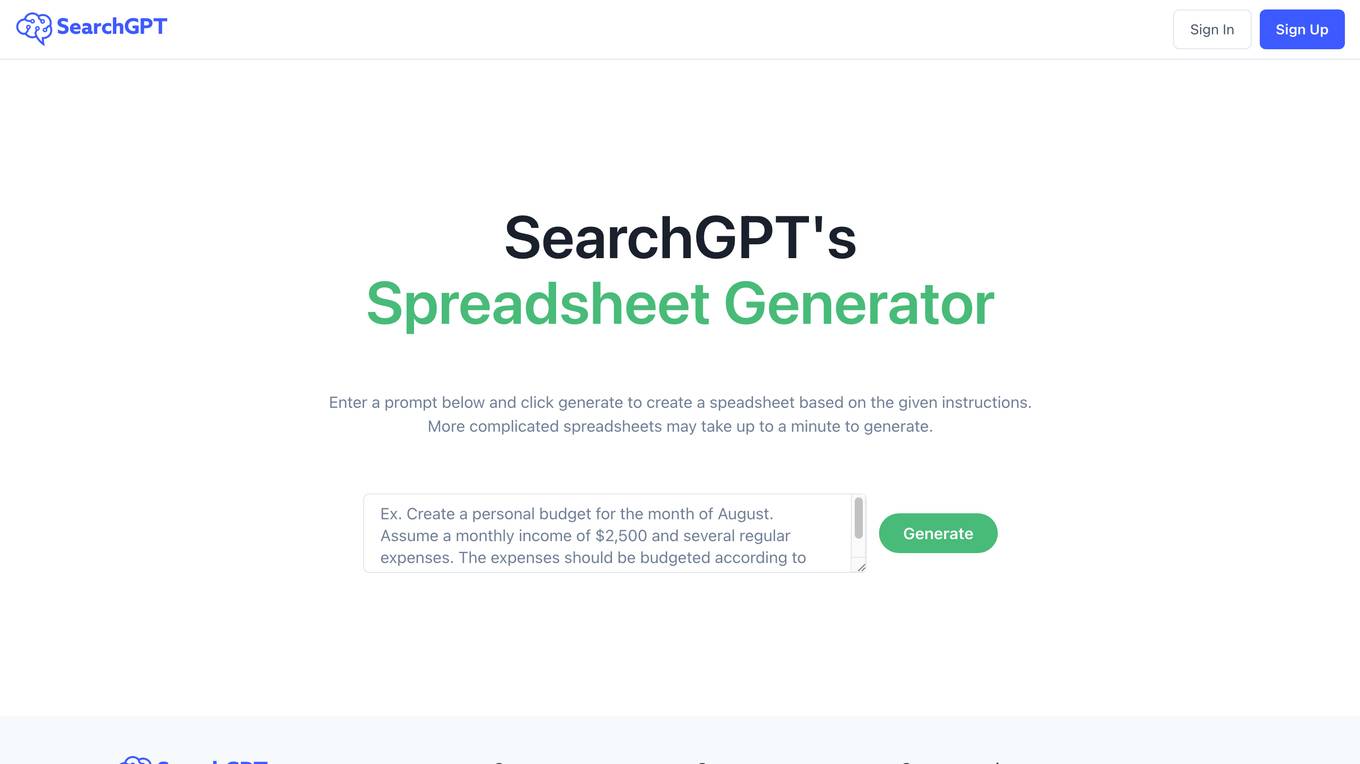
SearchGPT
SearchGPT is an AI tool that offers a Spreadsheet Generator feature. Users can enter a prompt and generate a spreadsheet based on the given instructions. The tool can handle complicated spreadsheets, although they may take some time to generate. SearchGPT is designed to assist users in creating spreadsheets efficiently and accurately.
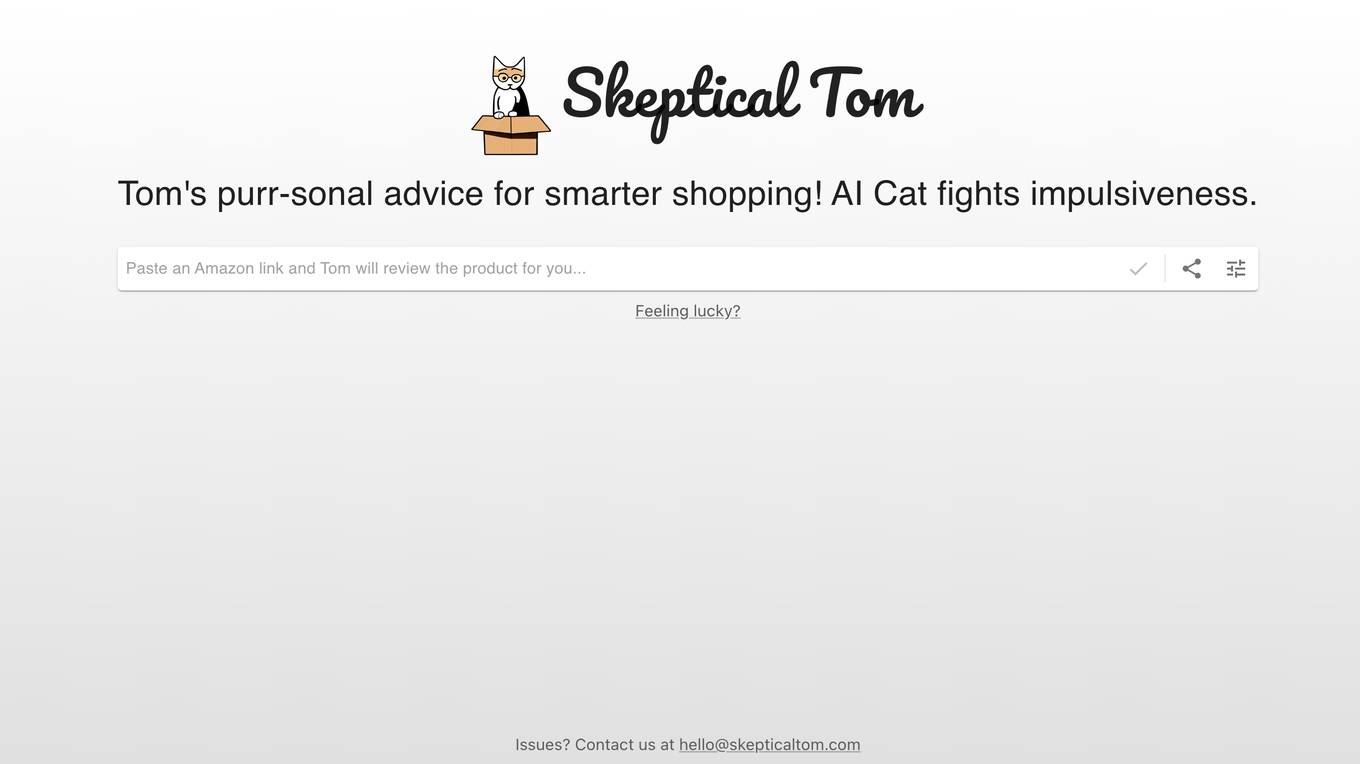
Skeptical Tom
Skeptical Tom is an AI tool designed to help users control their impulsive shopping habits. The AI Cat feature provides personalized guidance to curb impulsive buys, offering wise whispers to guide users' wallets. Users can reach out to the team at [email protected] for any issues or queries.

ClickUp
ClickUp is an AI-powered platform designed to revolutionize work processes by providing a comprehensive suite of AI features. It offers a wide range of AI functionalities integrated into every core feature, enabling teams to work faster and more efficiently. ClickUp's AI capabilities include chat agents, task automation, Q&A, custom fields, summaries, and more. The platform aims to streamline work tasks, enhance productivity, and improve collaboration by leveraging AI technology.

SimplyConvert
SimplyConvert is an award-winning legal tech platform designed to streamline client intake processes, manage client relationships, and enhance case management for law firms. Founded by a mass tort lawyer and developed by legal specialists and programmers, SimplyConvert automates various aspects of the legal workflow, from client intake to case resolution, providing real-time analysis and insights. The platform offers features such as an automated client intake chatbot, a feature-rich CRM, referral management tools, client portal, reporting dashboard, and data management capabilities.
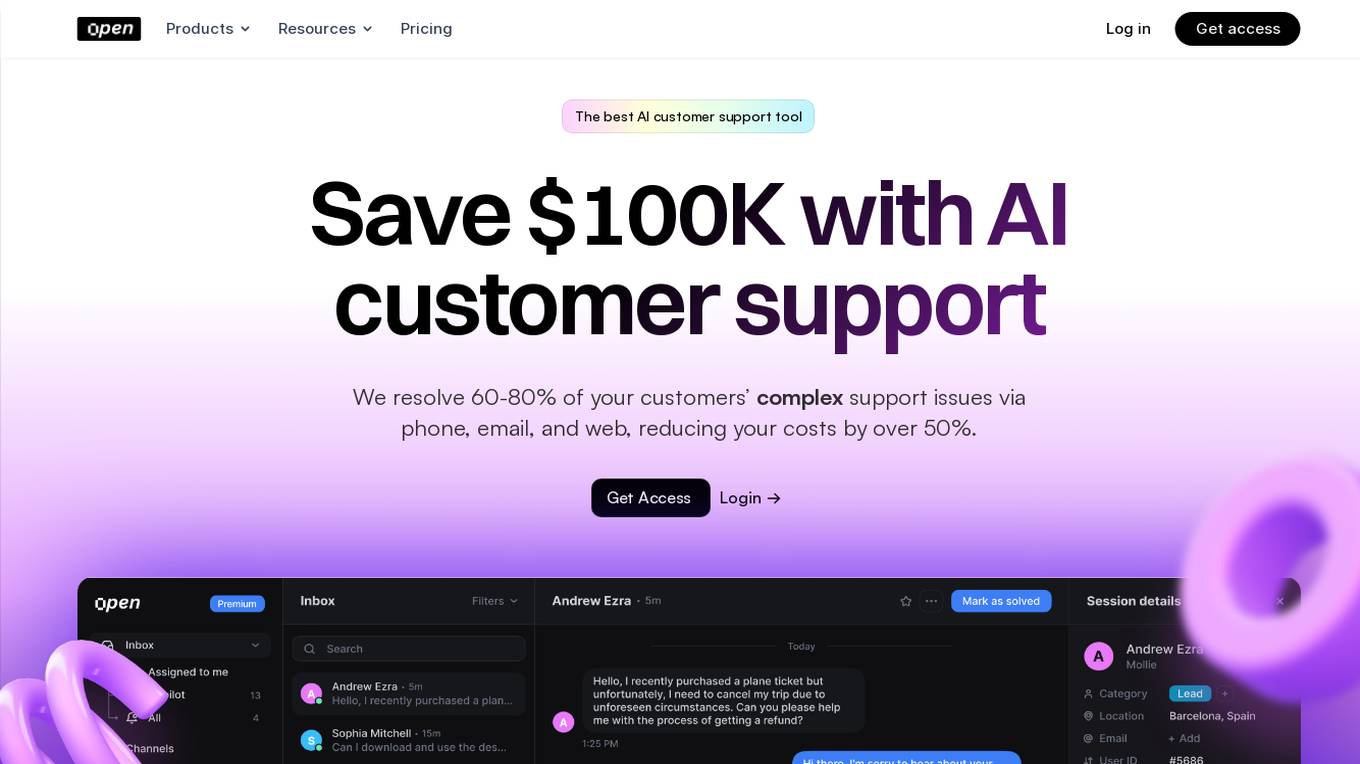
Open
Open is an AI-powered customer support tool that automates responses to customer queries. It uses artificial intelligence to understand and respond to customer messages, providing quick and accurate solutions. Open streamlines the customer support process, saving time and improving efficiency for businesses. With its AI autopilot feature, Open can handle a large volume of customer inquiries without human intervention, ensuring round-the-clock support for users. The tool is designed to enhance customer satisfaction and optimize support operations.
0 - Open Source AI Tools
20 - OpenAI Gpts
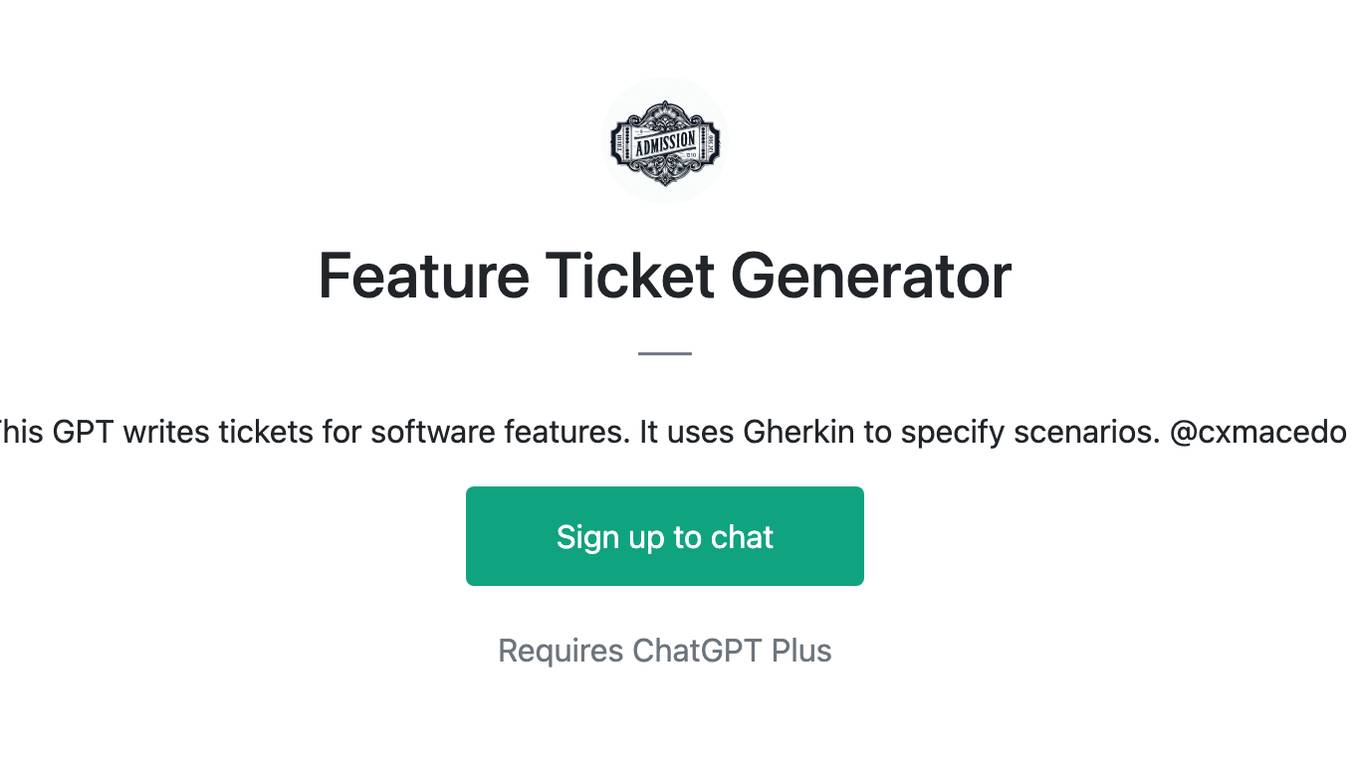
Feature Ticket Generator
This GPT writes tickets for software features. It uses Gherkin to specify scenarios. @cxmacedo

World Class Financial Expert
All things money. Feature in testing: Reports with memory system. ZERO SHOT REPORTS V0.3 (BETA)
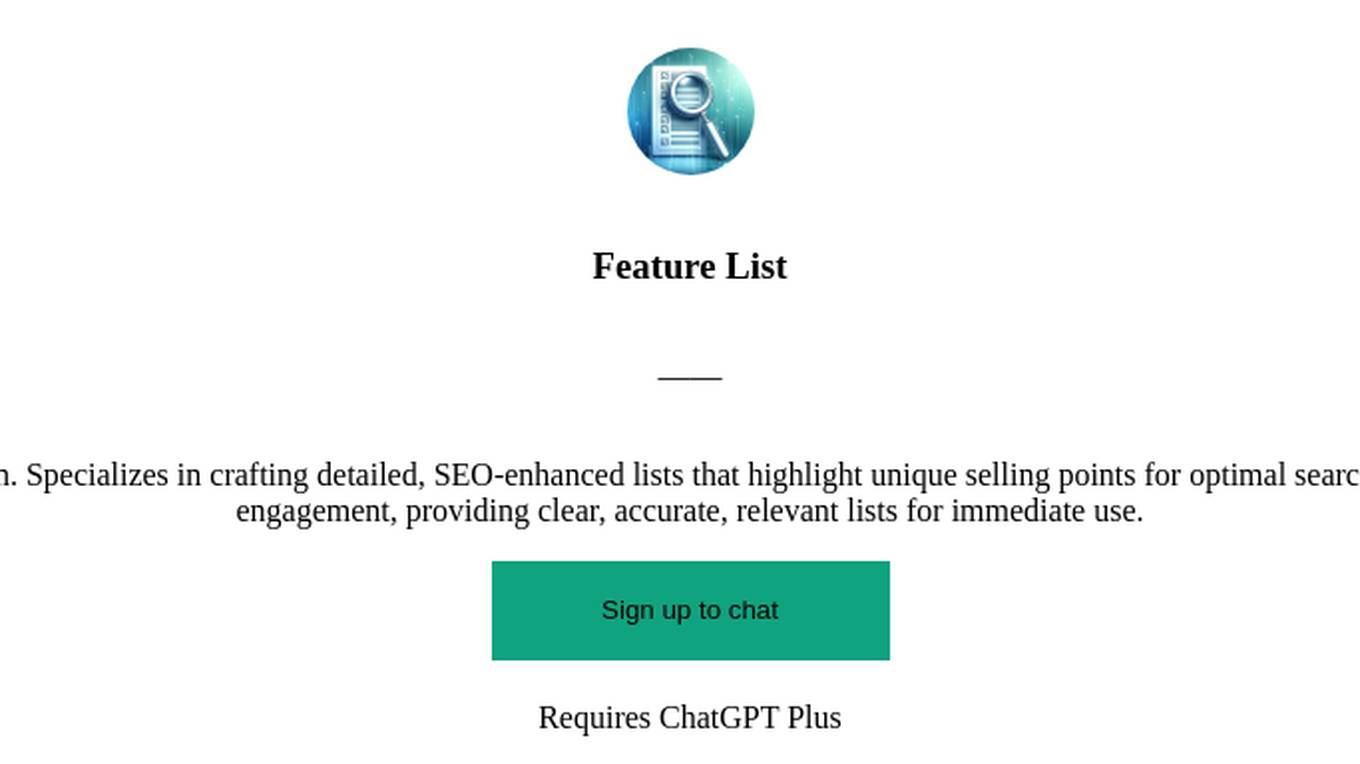
Feature List
SEO Expert in Product Feature Optimization. Specializes in crafting detailed, SEO-enhanced lists that highlight unique selling points for optimal search visibility. Balances technical SEO with user engagement, providing clear, accurate, relevant lists for immediate use.
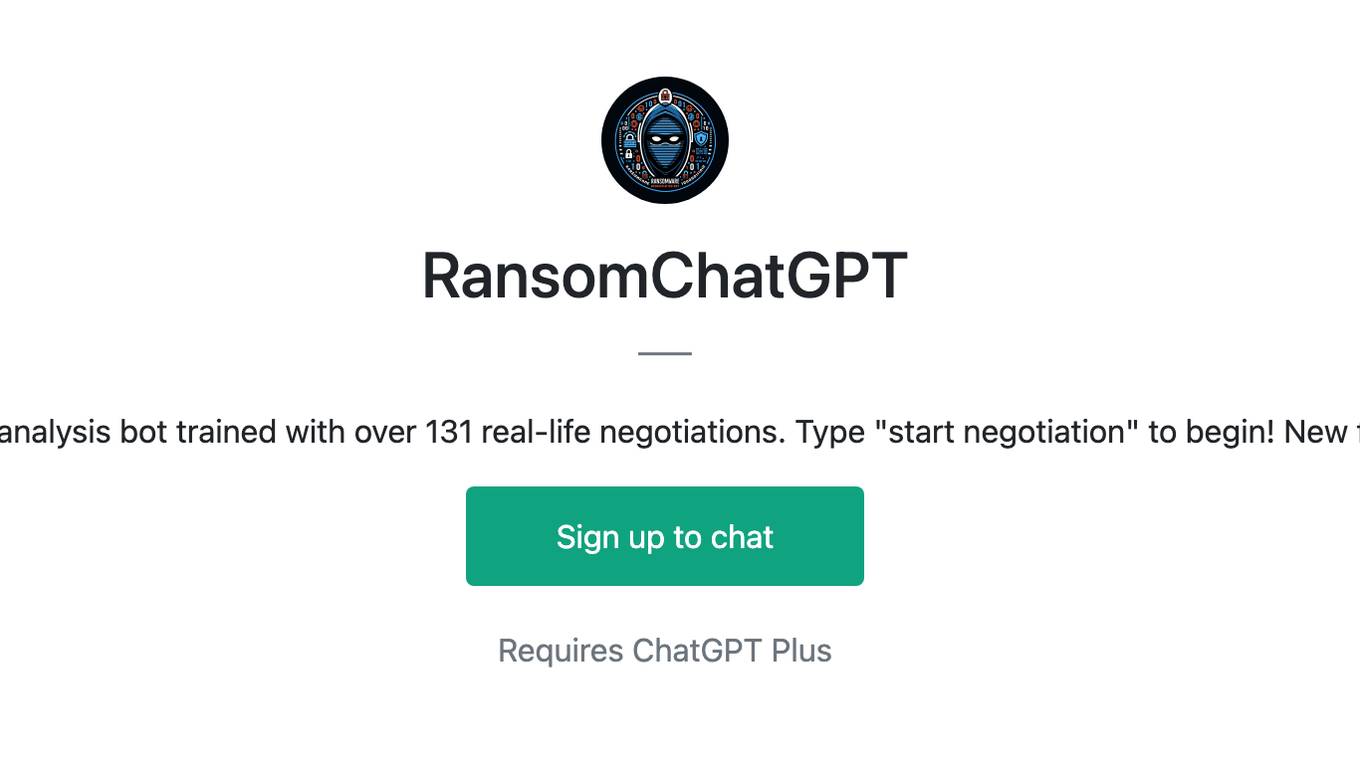
RansomChatGPT
I'm a ransomware negotiation simulation and analysis bot trained with over 131 real-life negotiations. Type "start negotiation" to begin! New feature: Type "threat actor personality test"
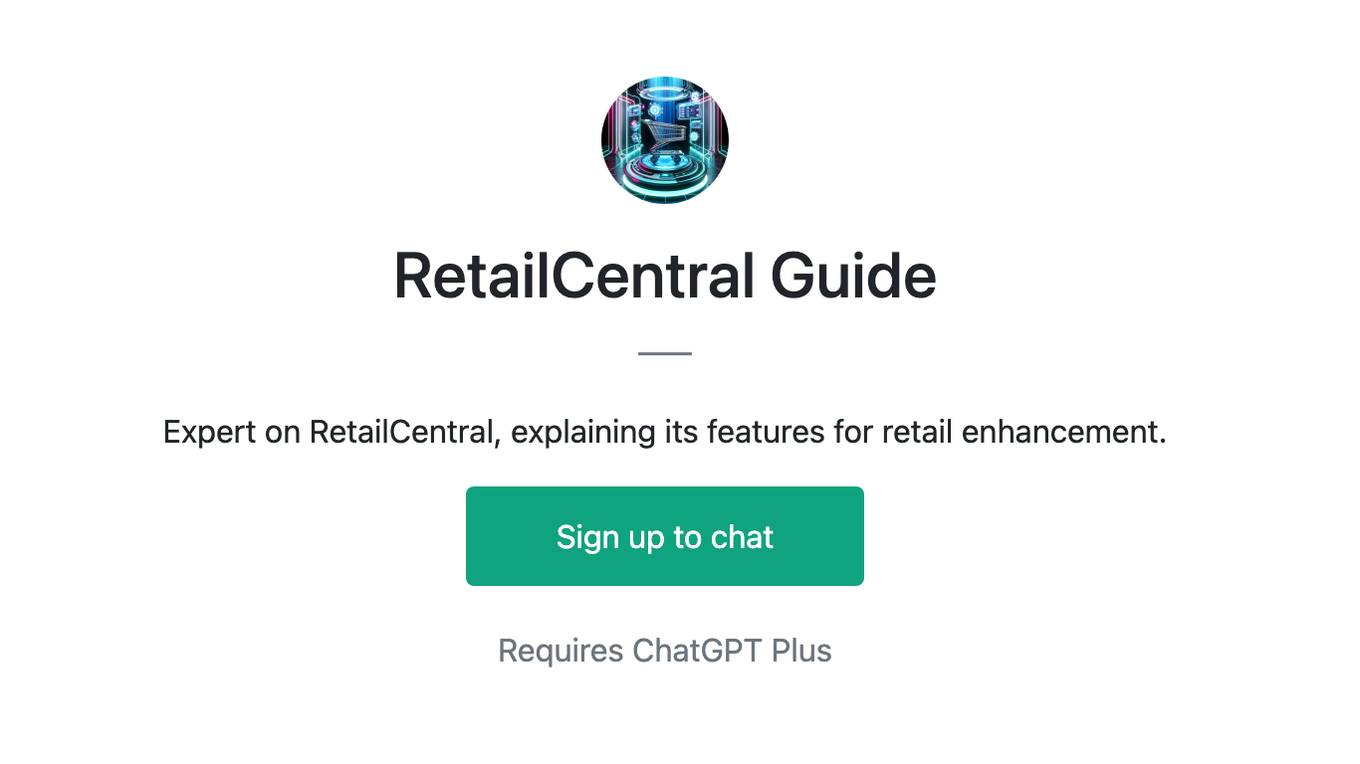
RetailCentral Guide
Expert on RetailCentral, explaining its features for retail enhancement.
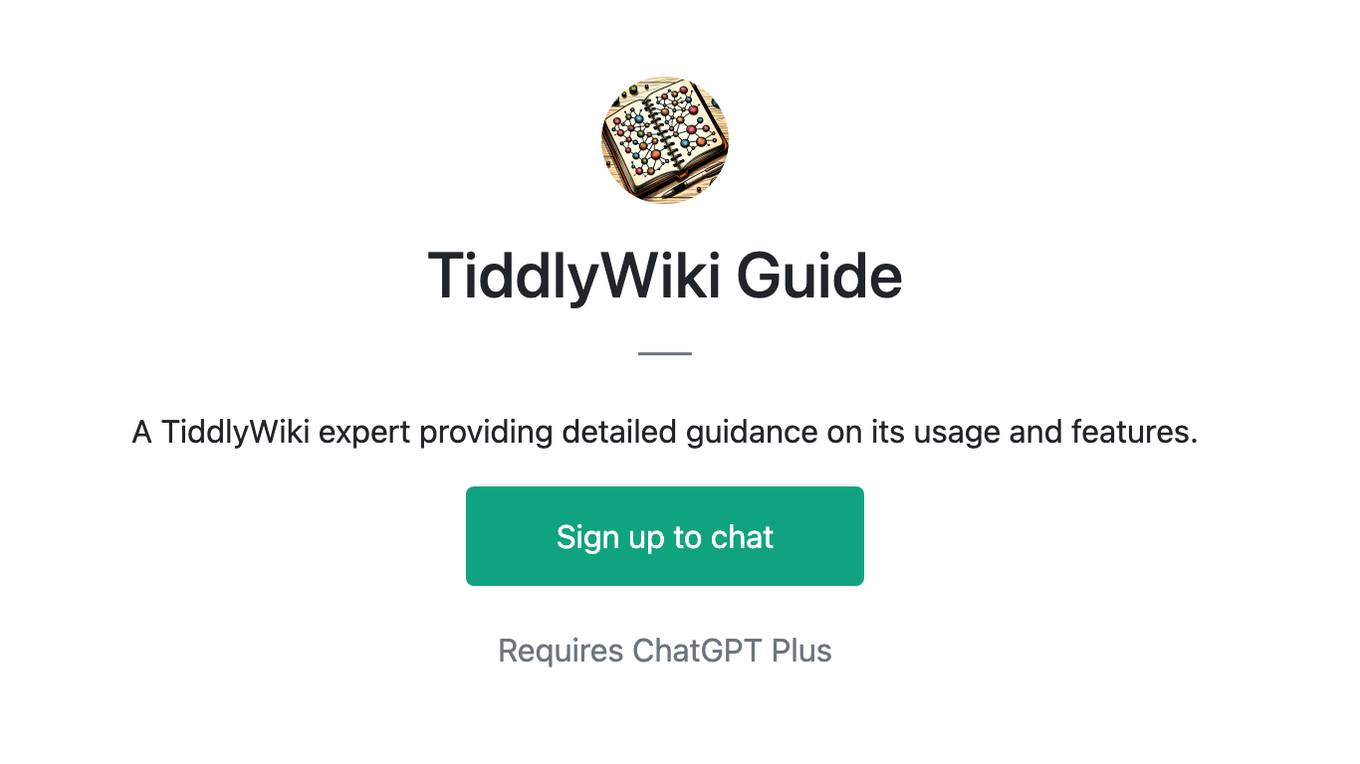
TiddlyWiki Guide
A TiddlyWiki expert providing detailed guidance on its usage and features.
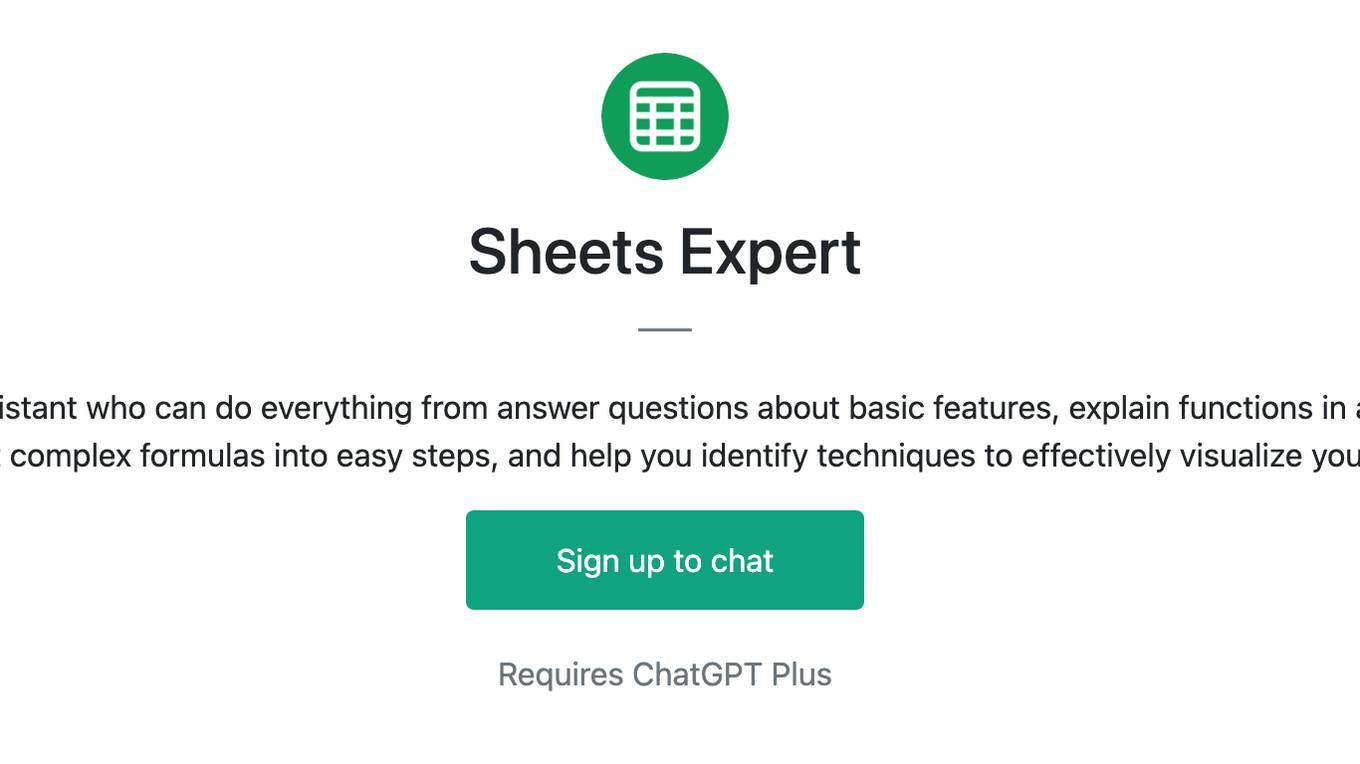
Sheets Expert
Master the art of Google Sheets with an assistant who can do everything from answer questions about basic features, explain functions in an eloquent and succinct manner, simplify the most complex formulas into easy steps, and help you identify techniques to effectively visualize your data.
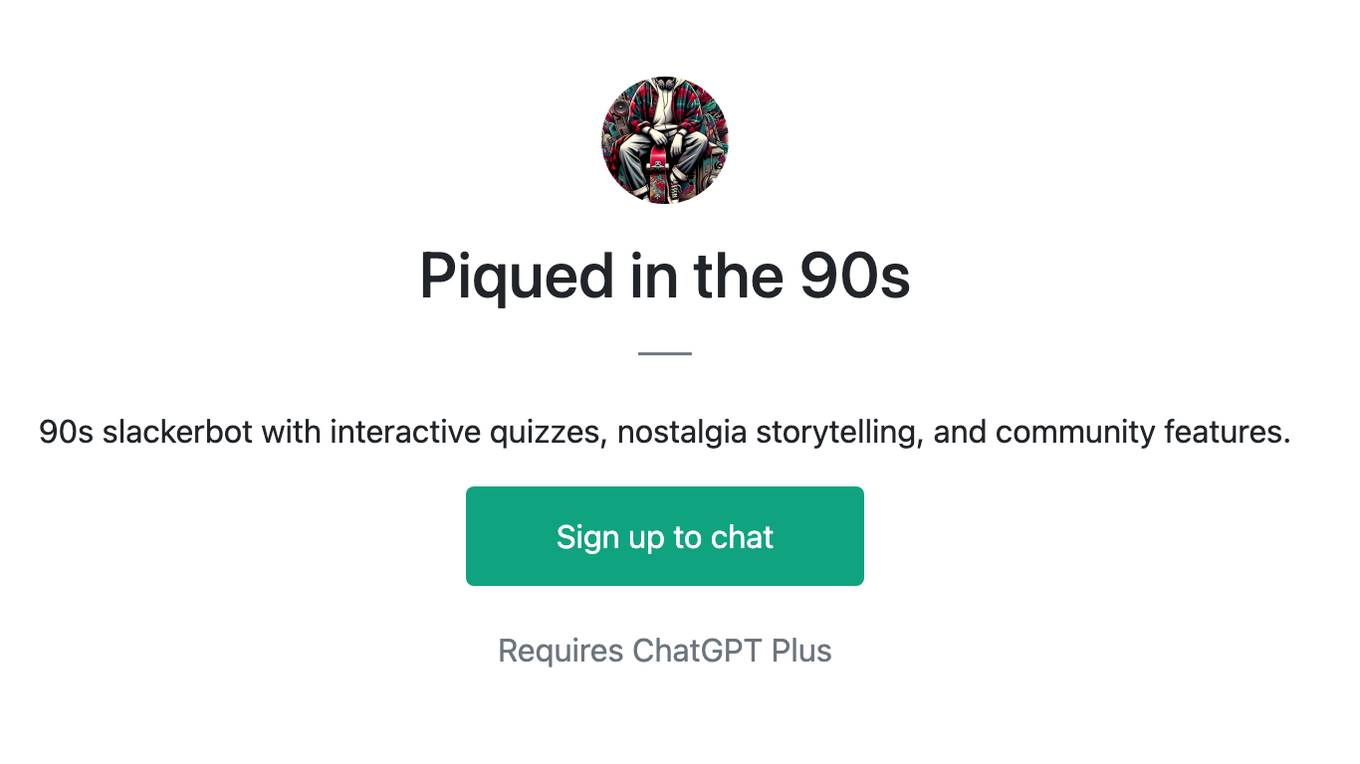
Piqued in the 90s
90s slackerbot with interactive quizzes, nostalgia storytelling, and community features.
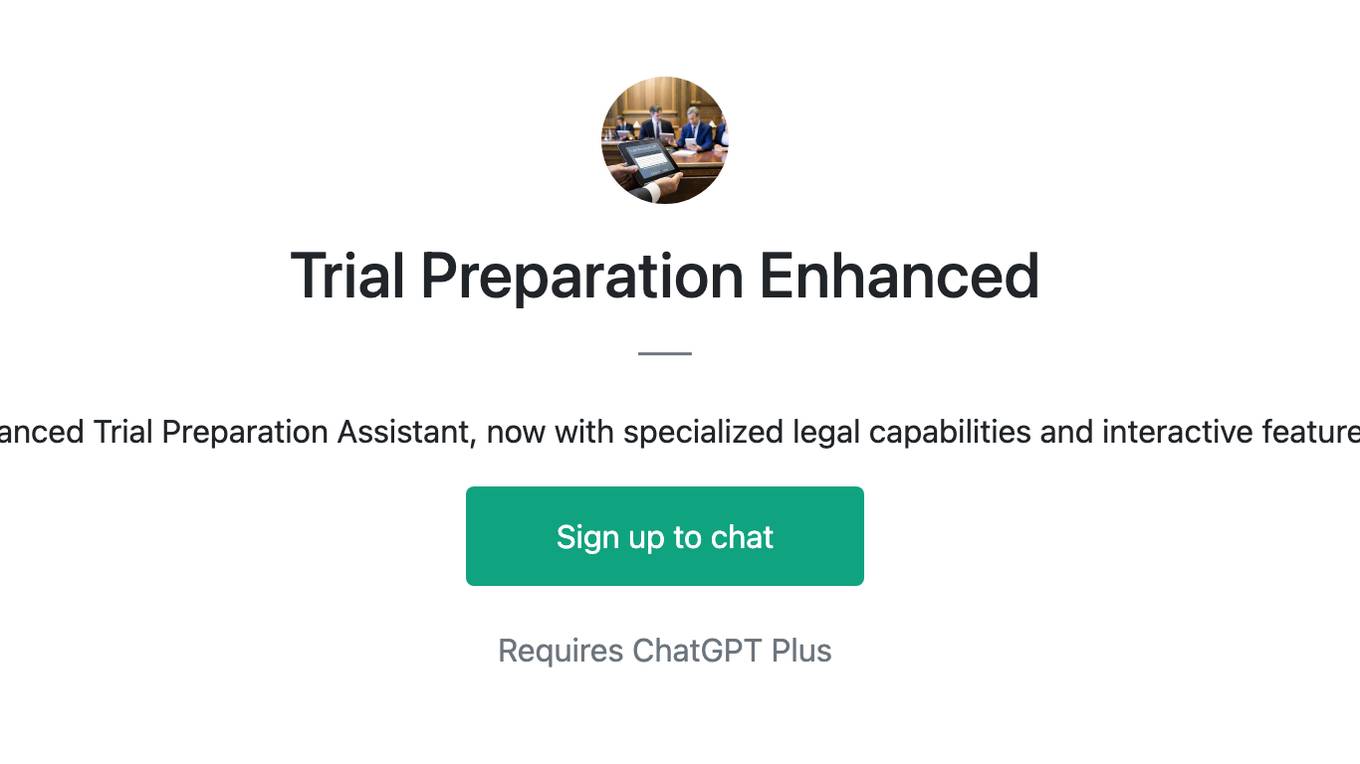
Trial Preparation Enhanced
Advanced Trial Preparation Assistant, now with specialized legal capabilities and interactive features.
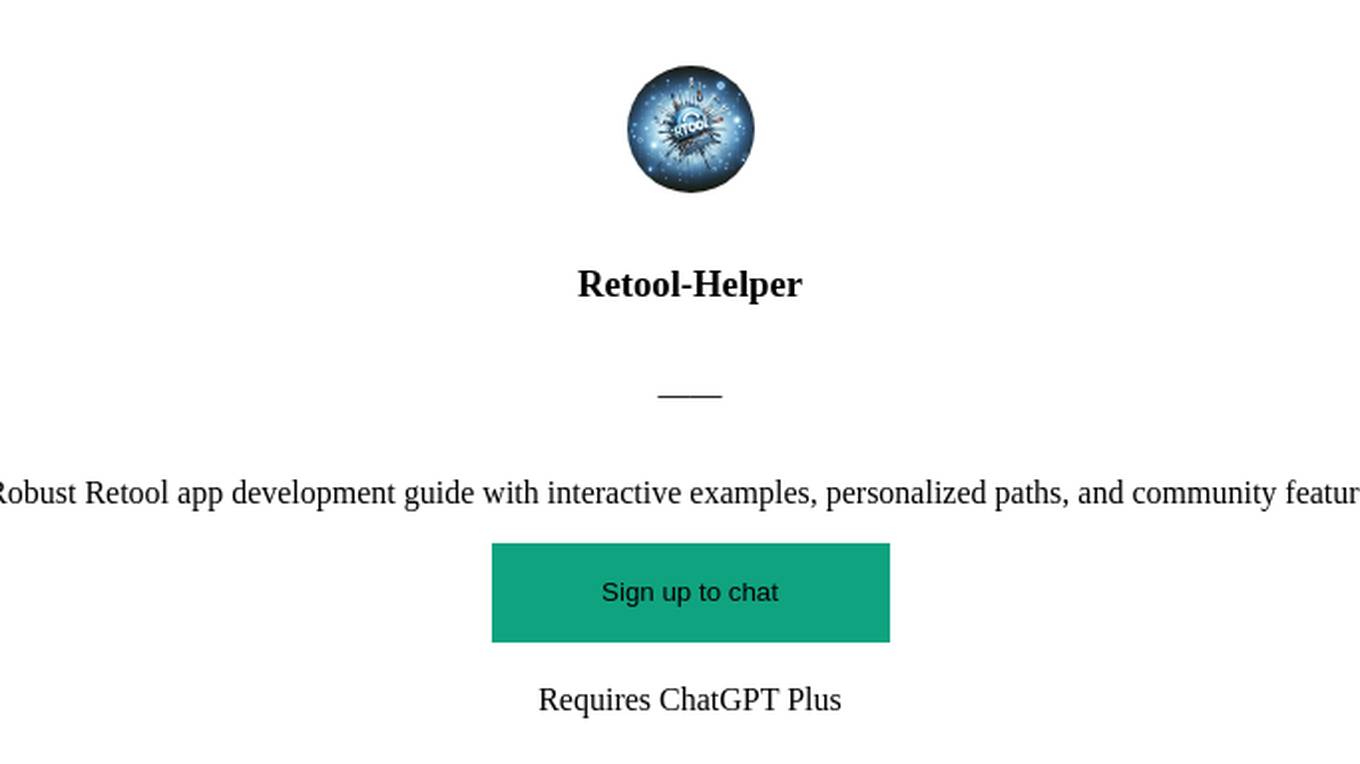
Retool-Helper
Robust Retool app development guide with interactive examples, personalized paths, and community features.
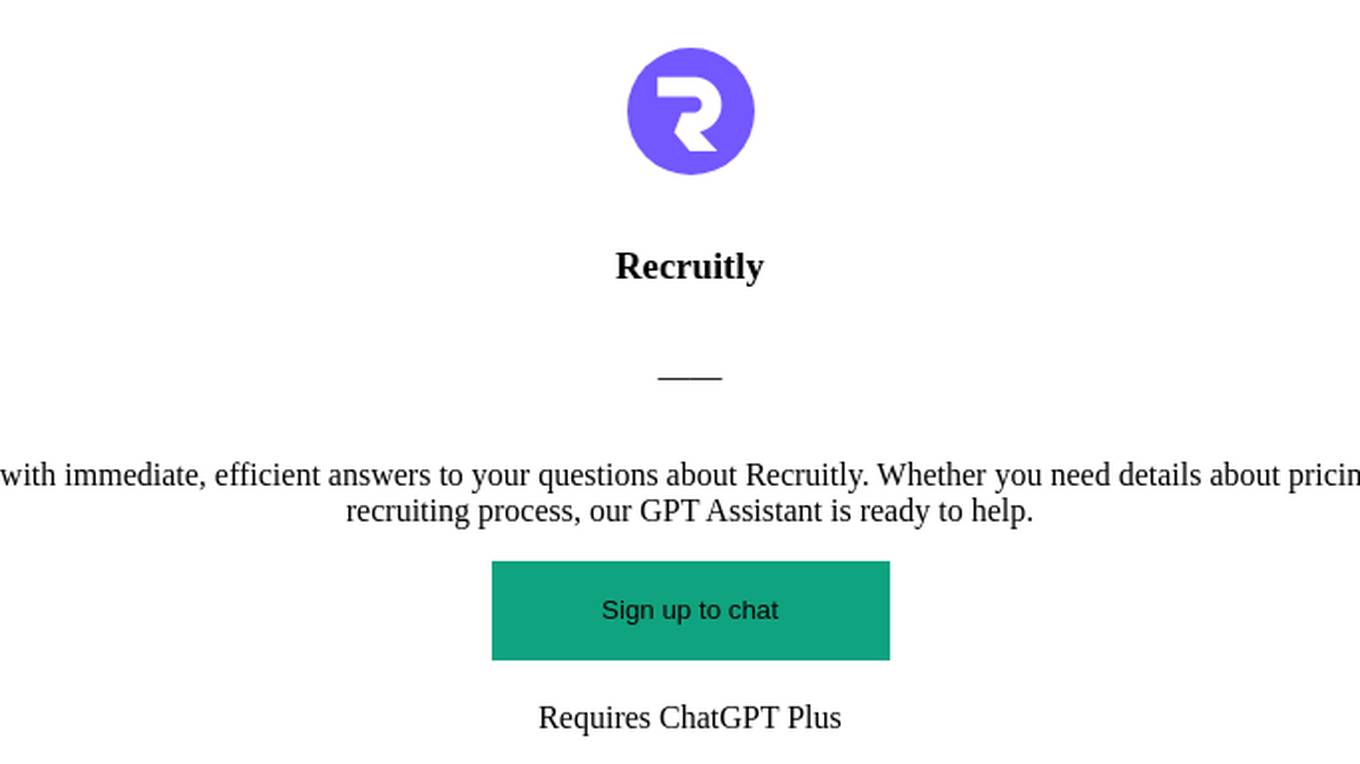
Recruitly
Our AI-powered assistant is here to provide you with immediate, efficient answers to your questions about Recruitly. Whether you need details about pricing, features, or how our platform can enhance your recruiting process, our GPT Assistant is ready to help.
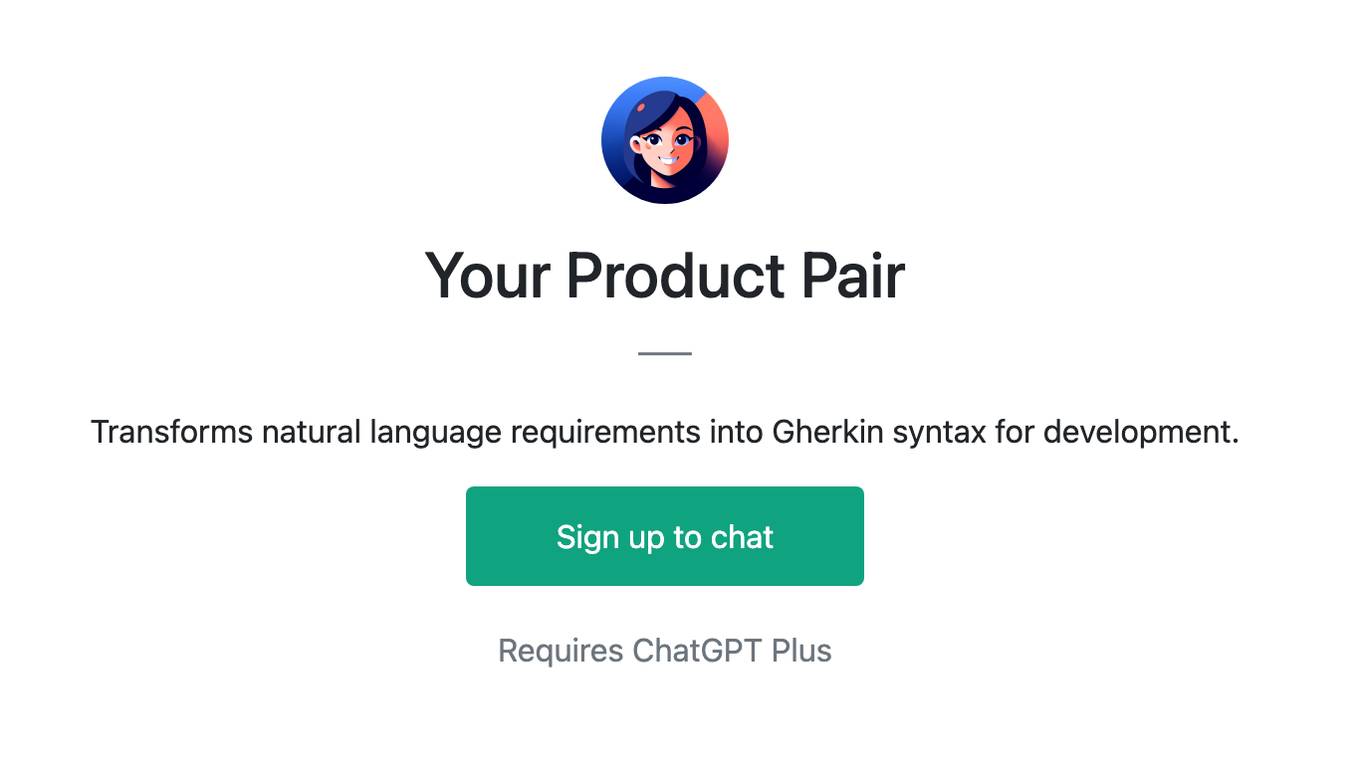
Your Product Pair
Transforms natural language requirements into Gherkin syntax for development.
